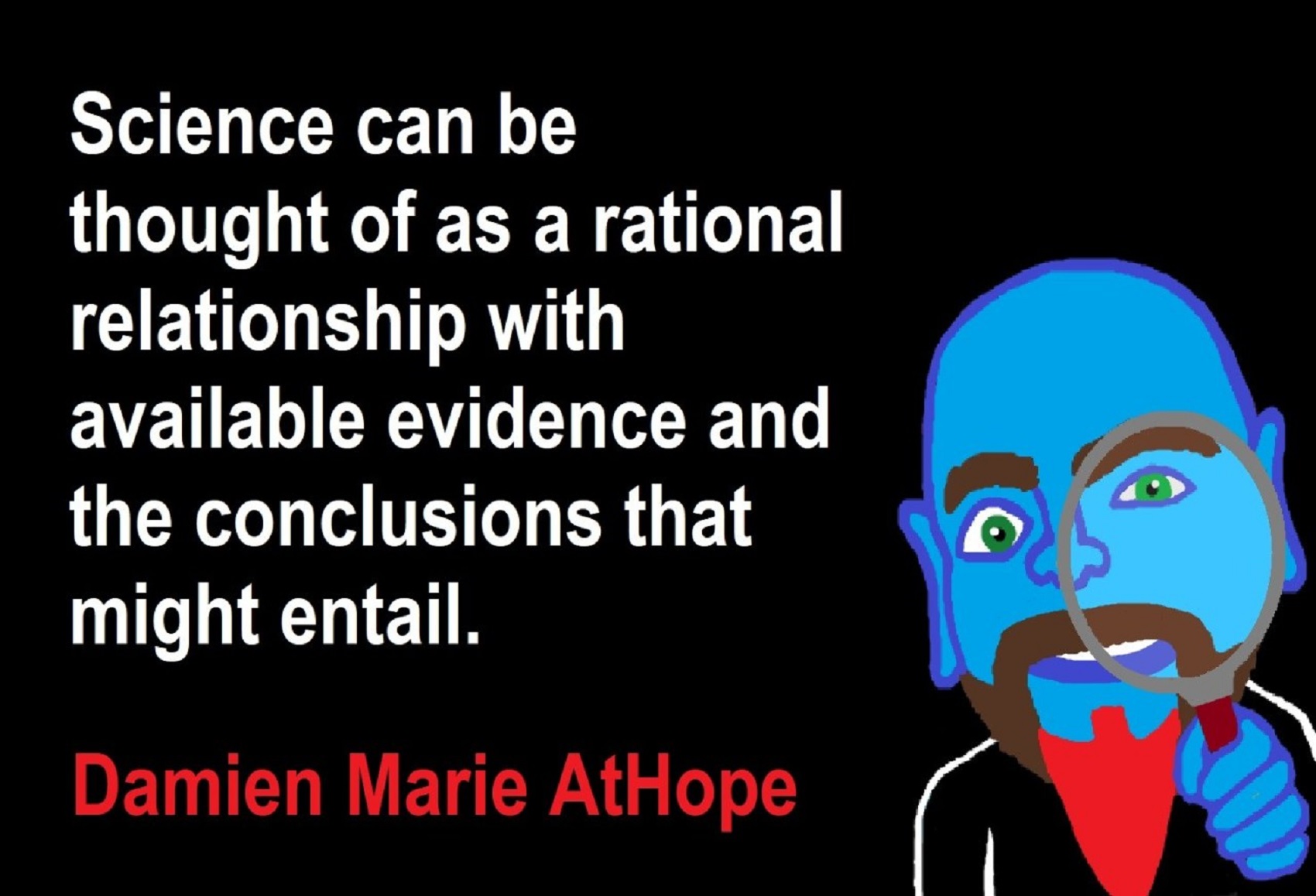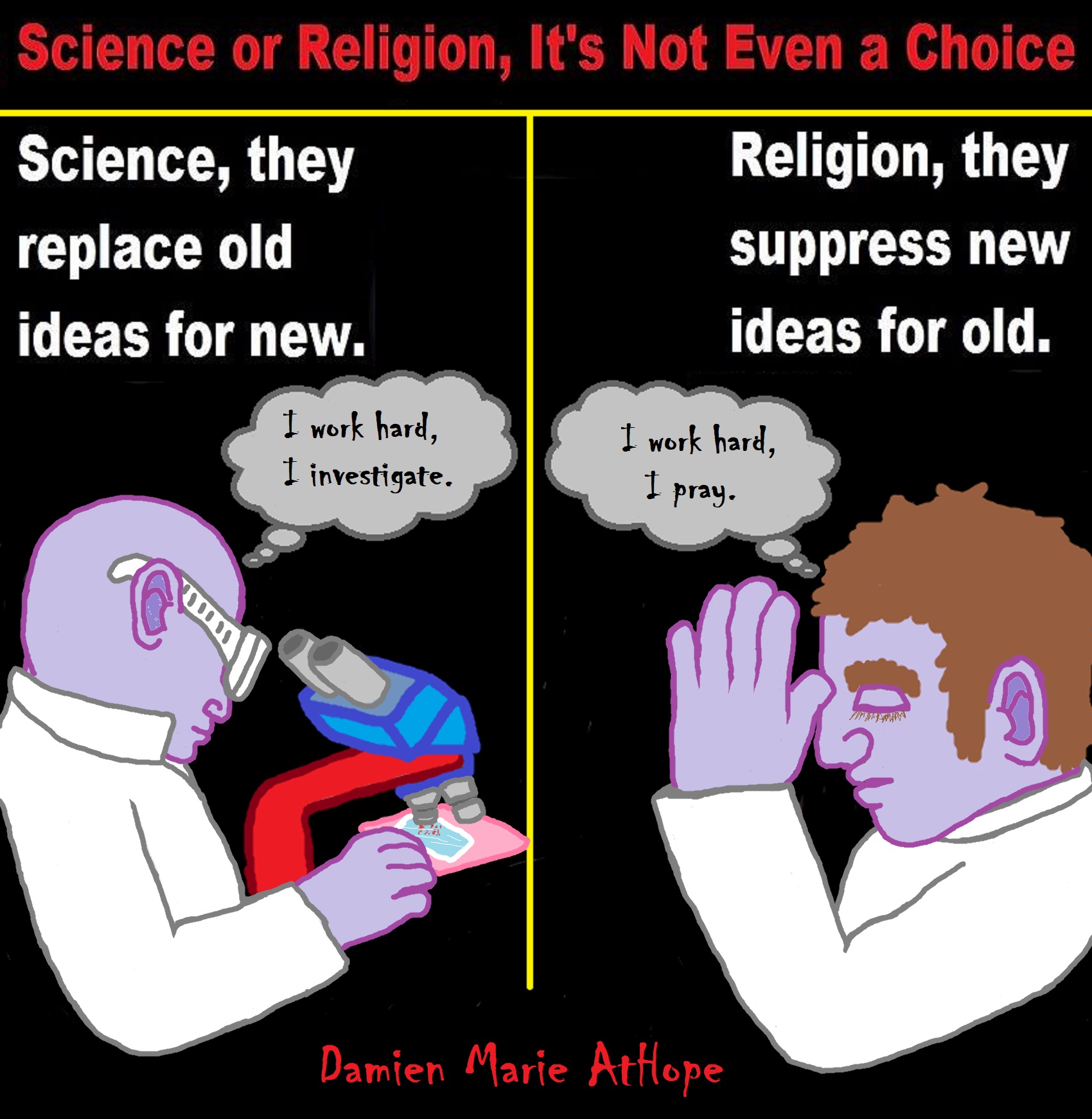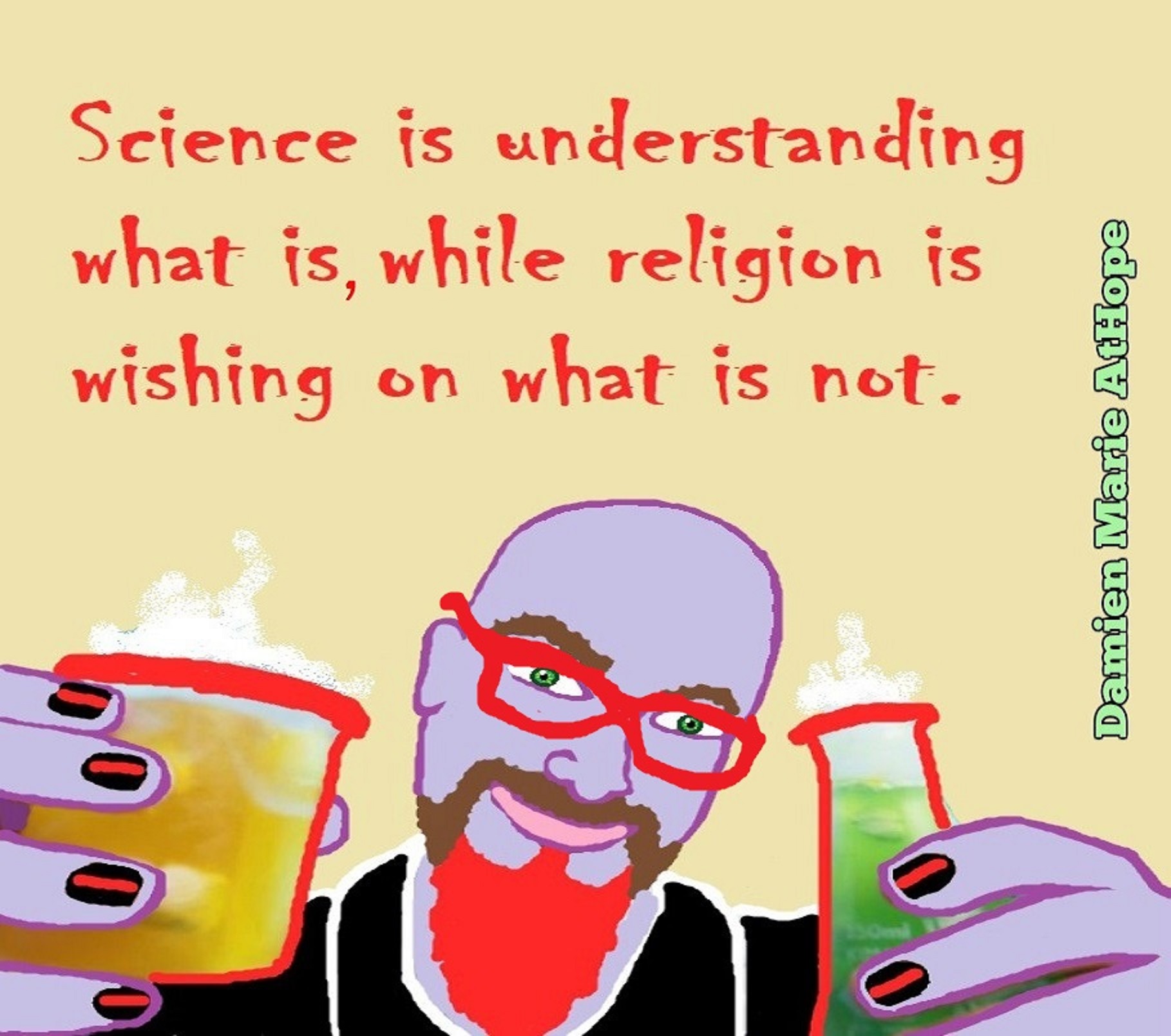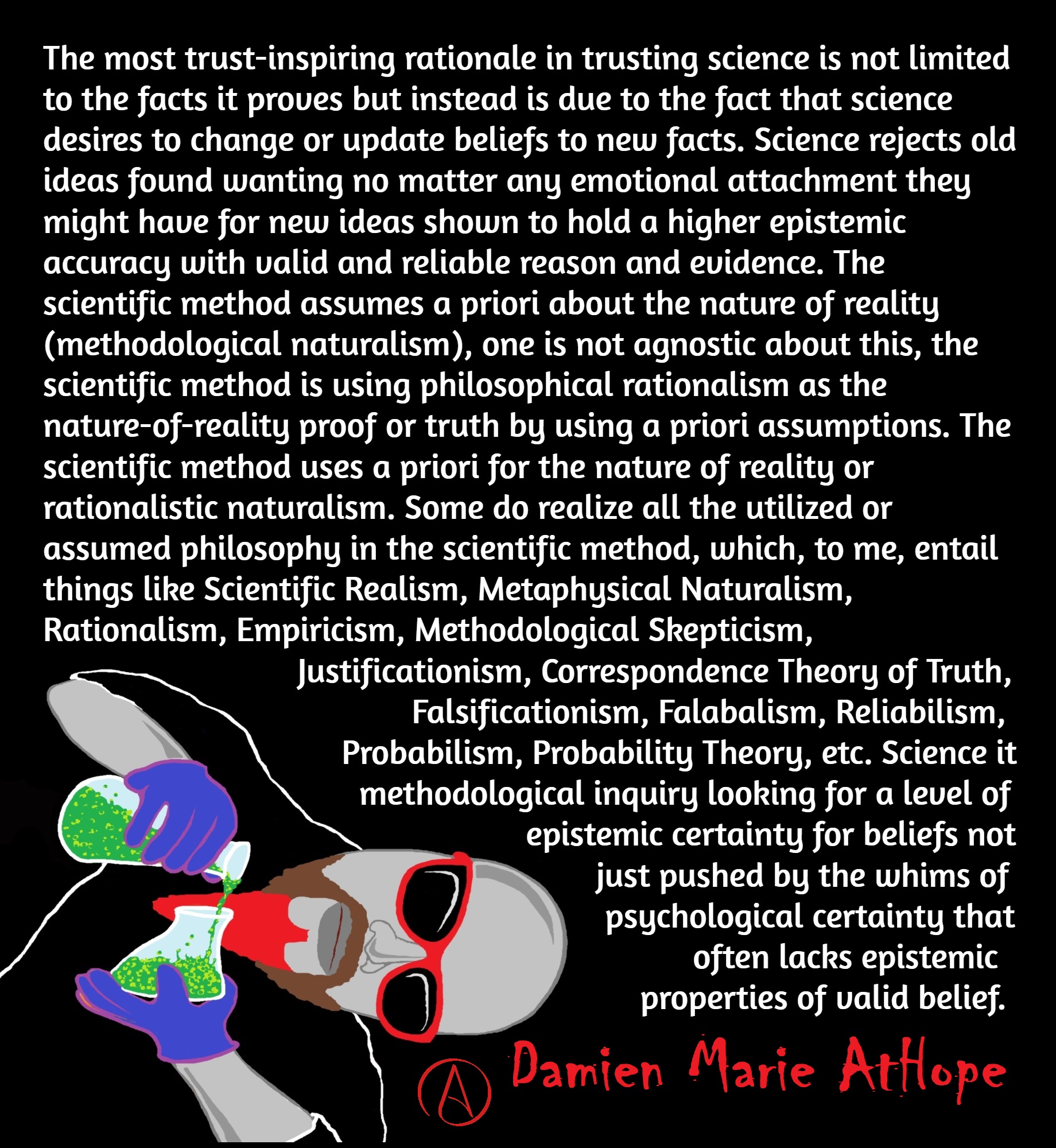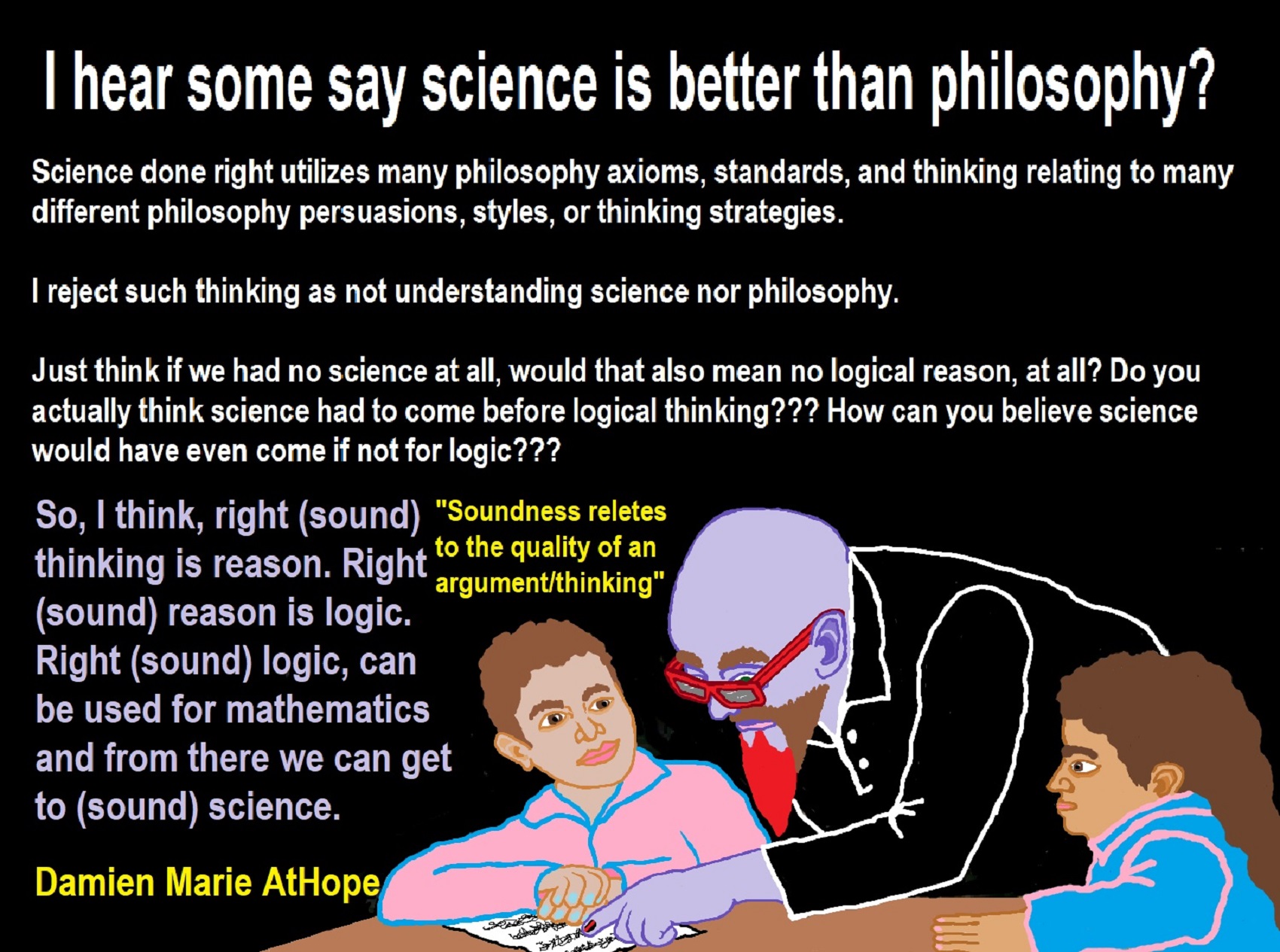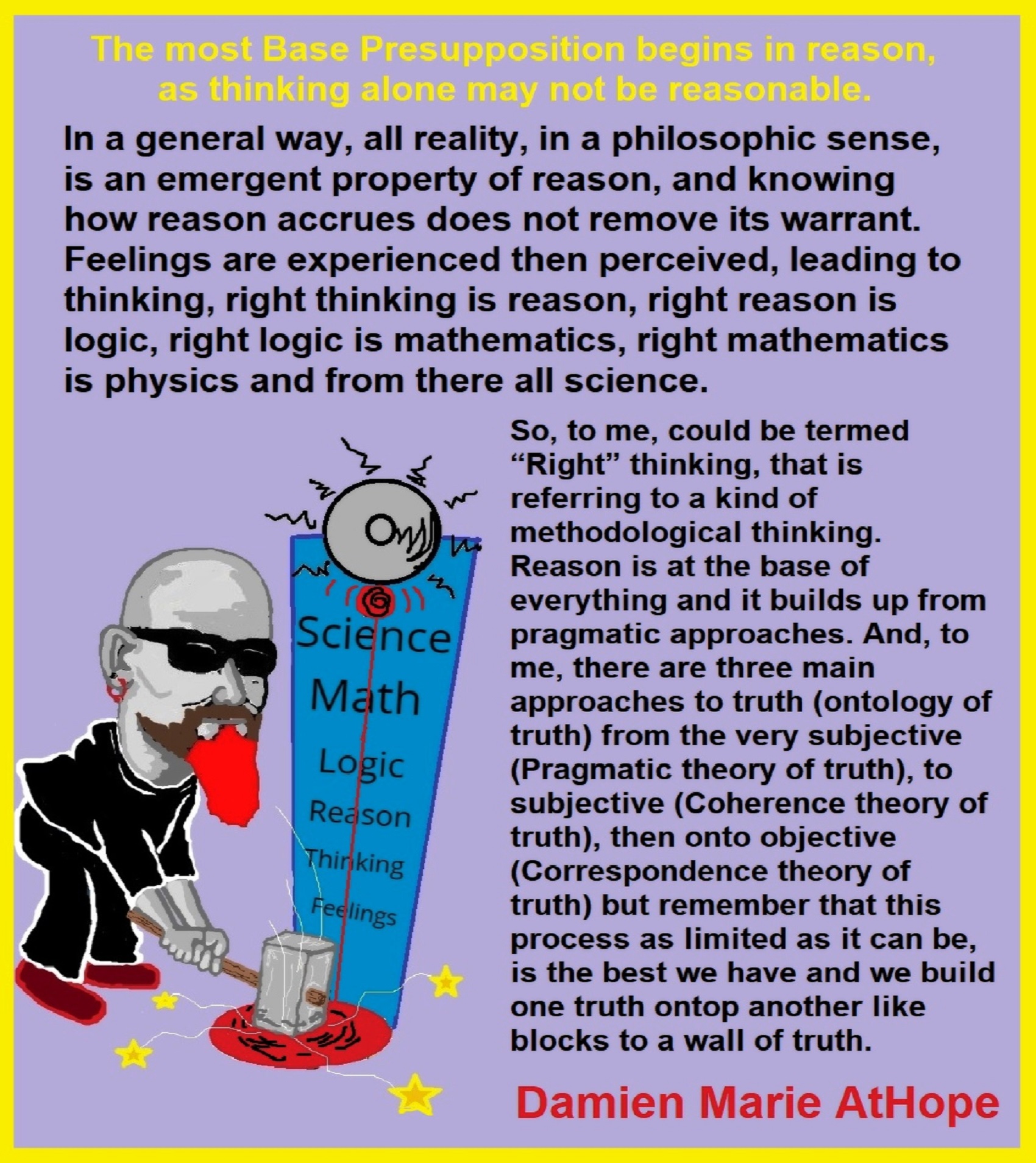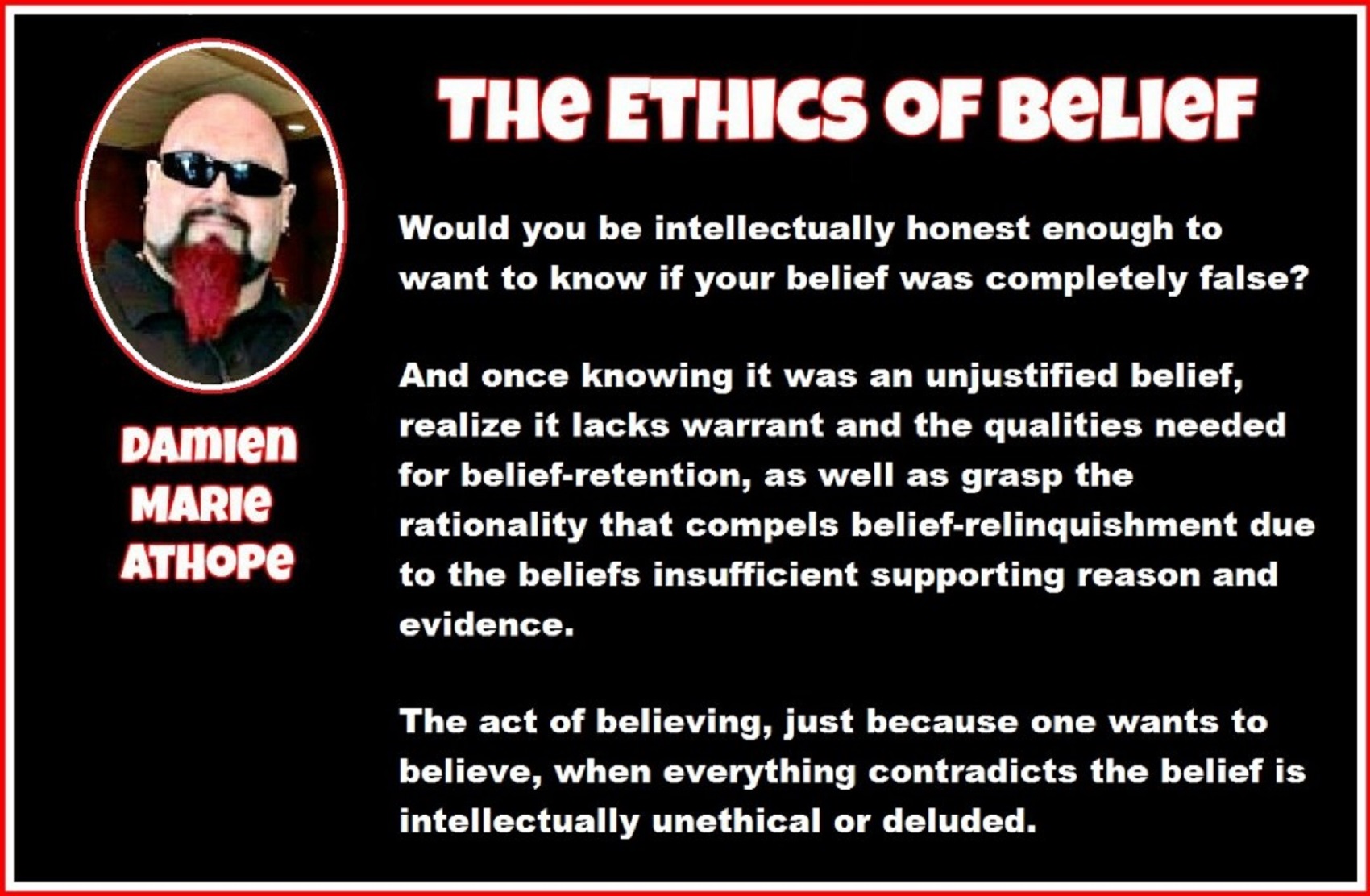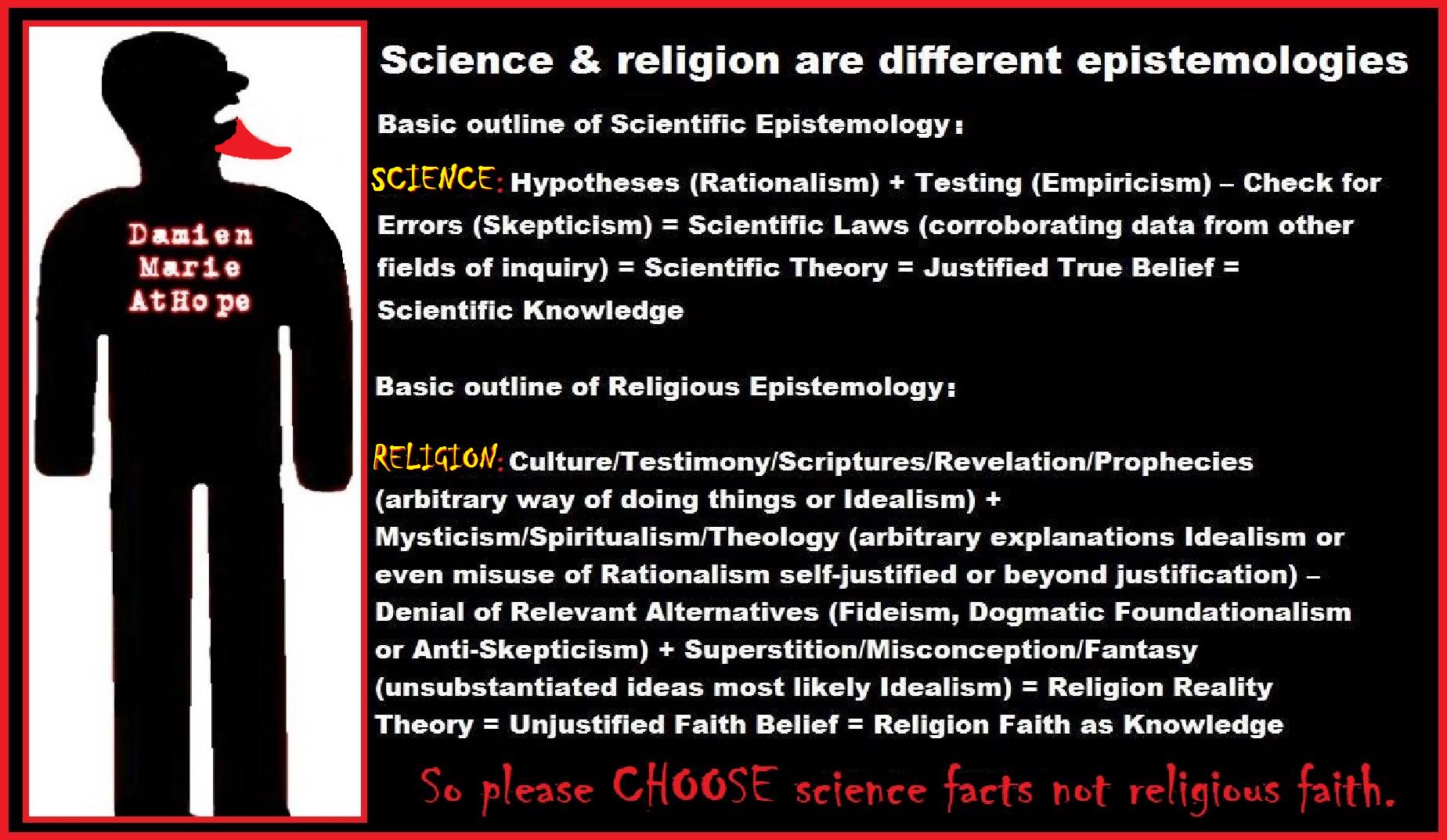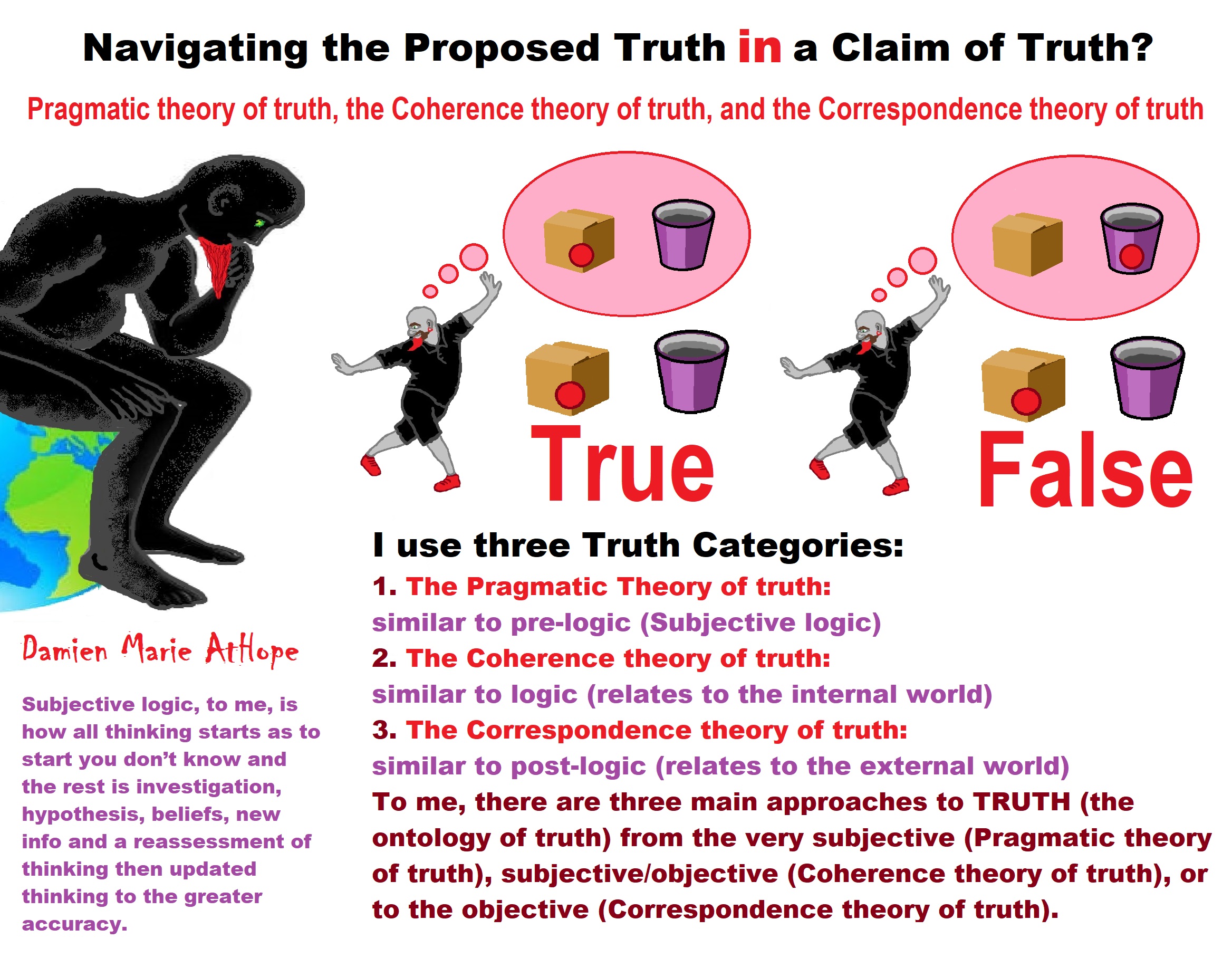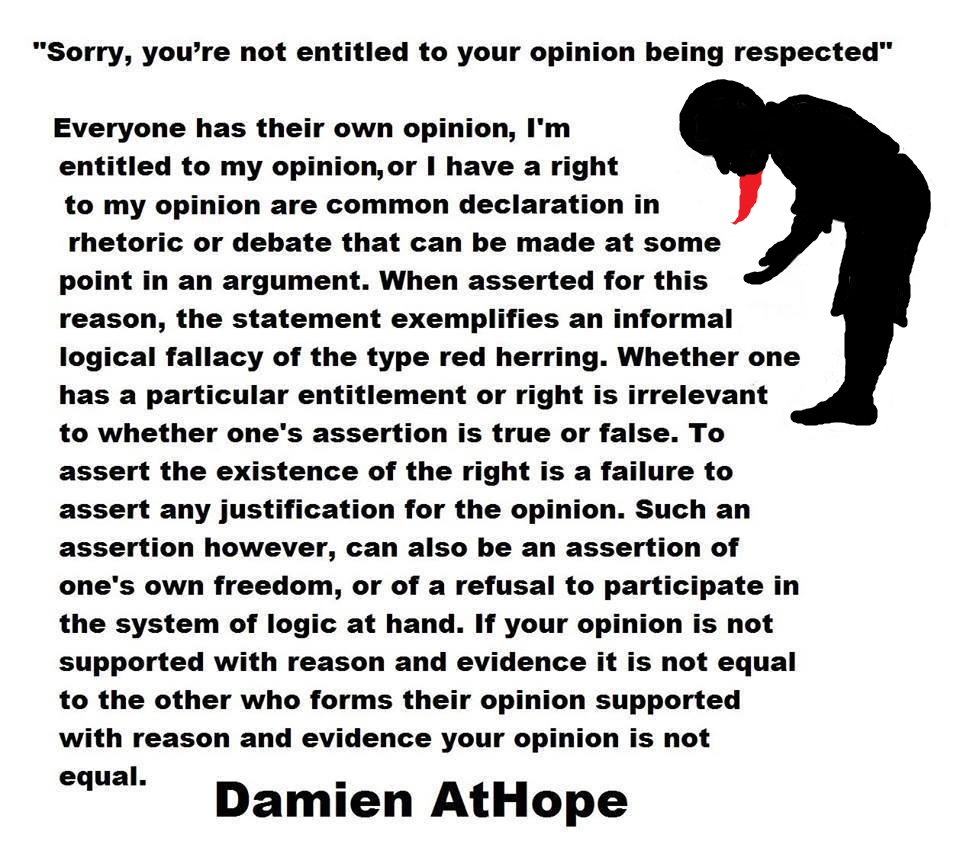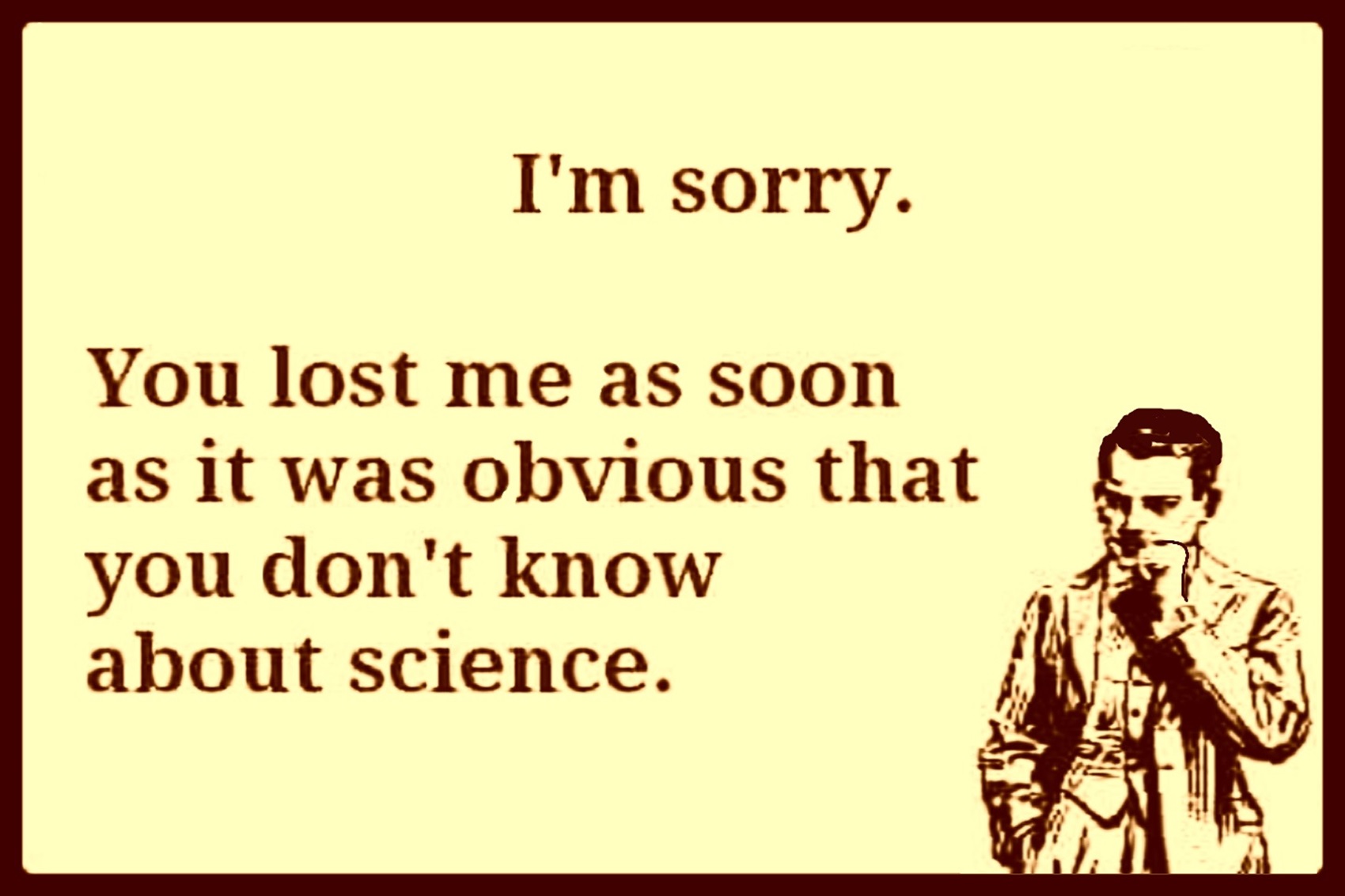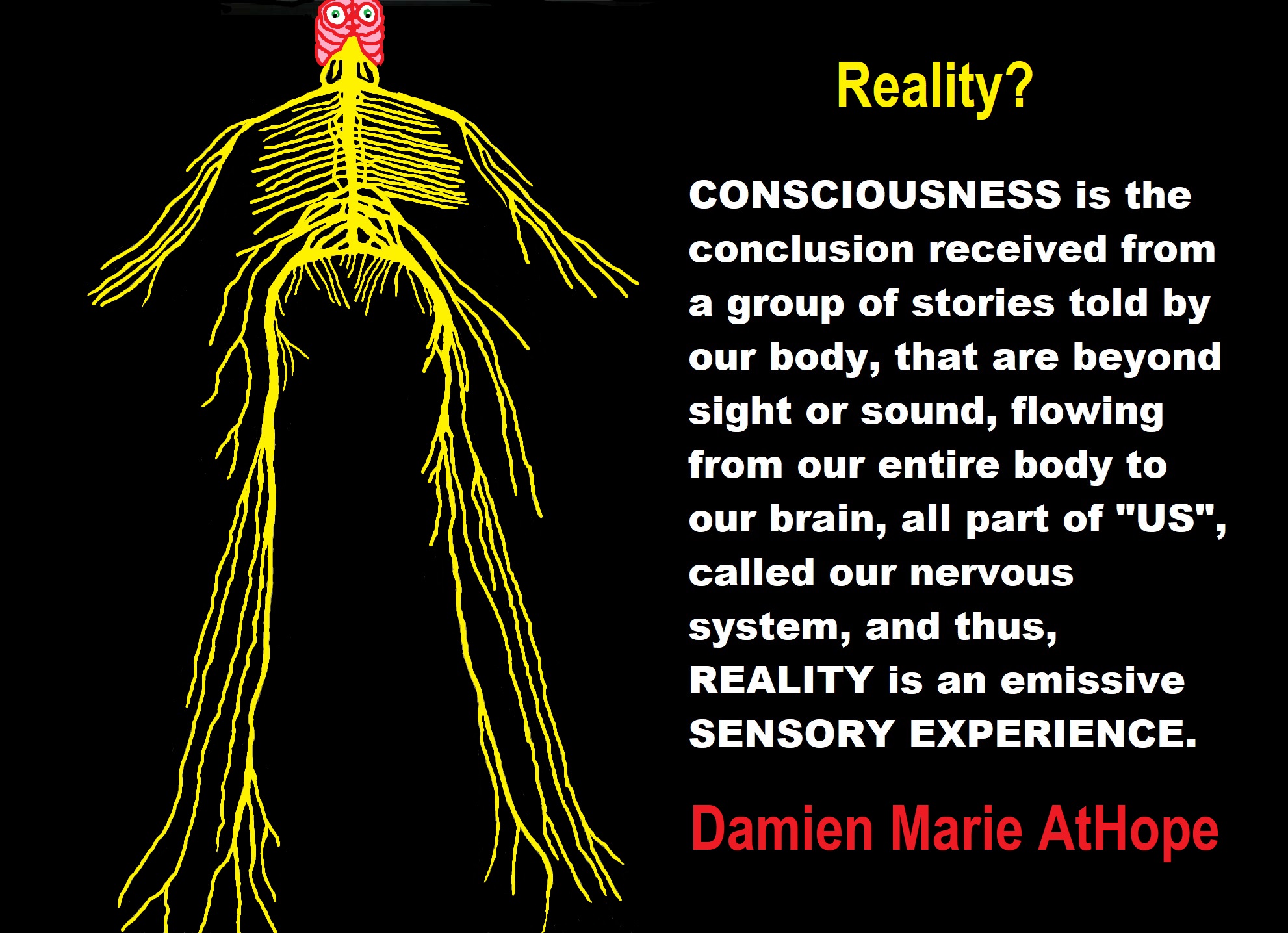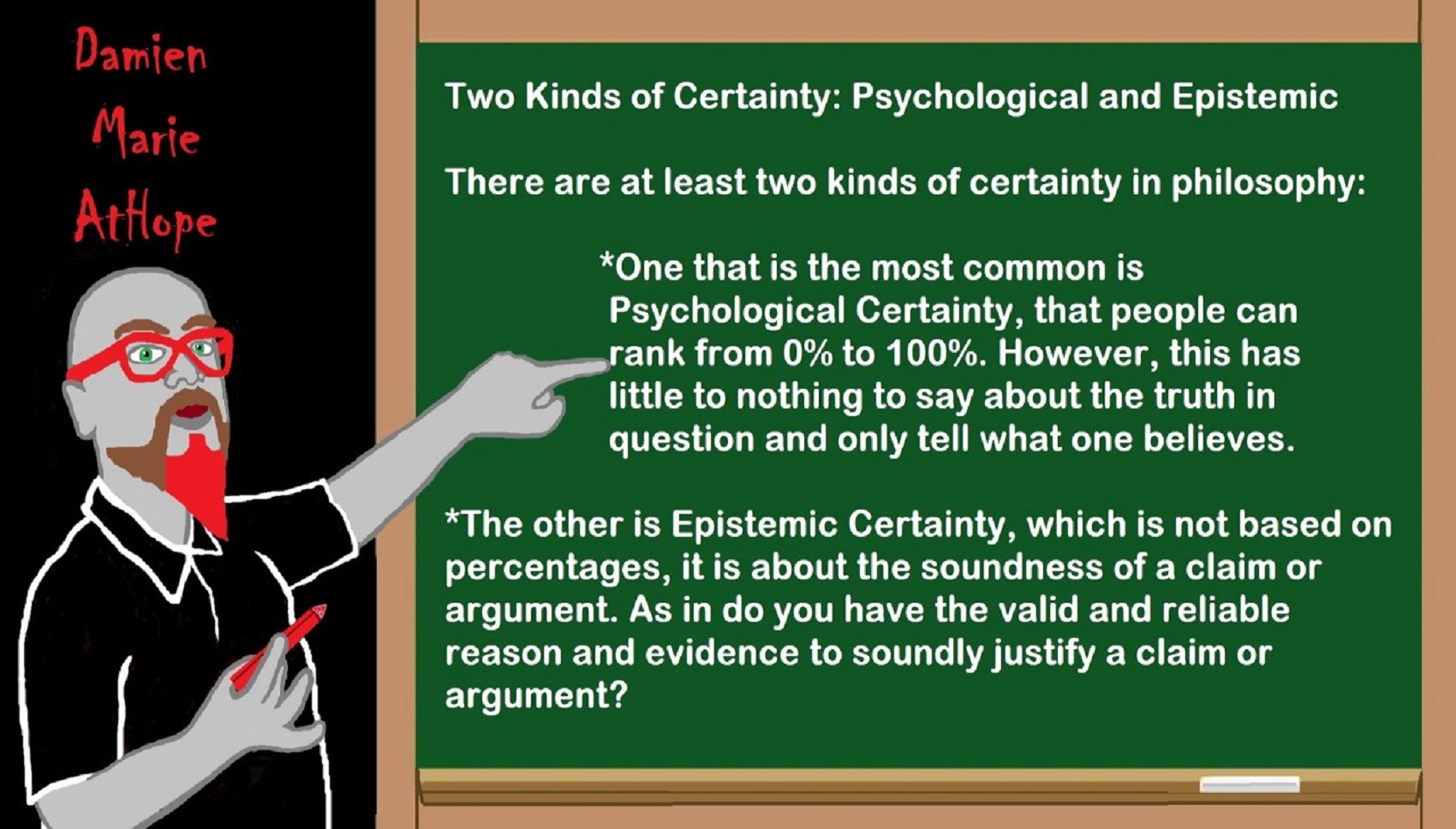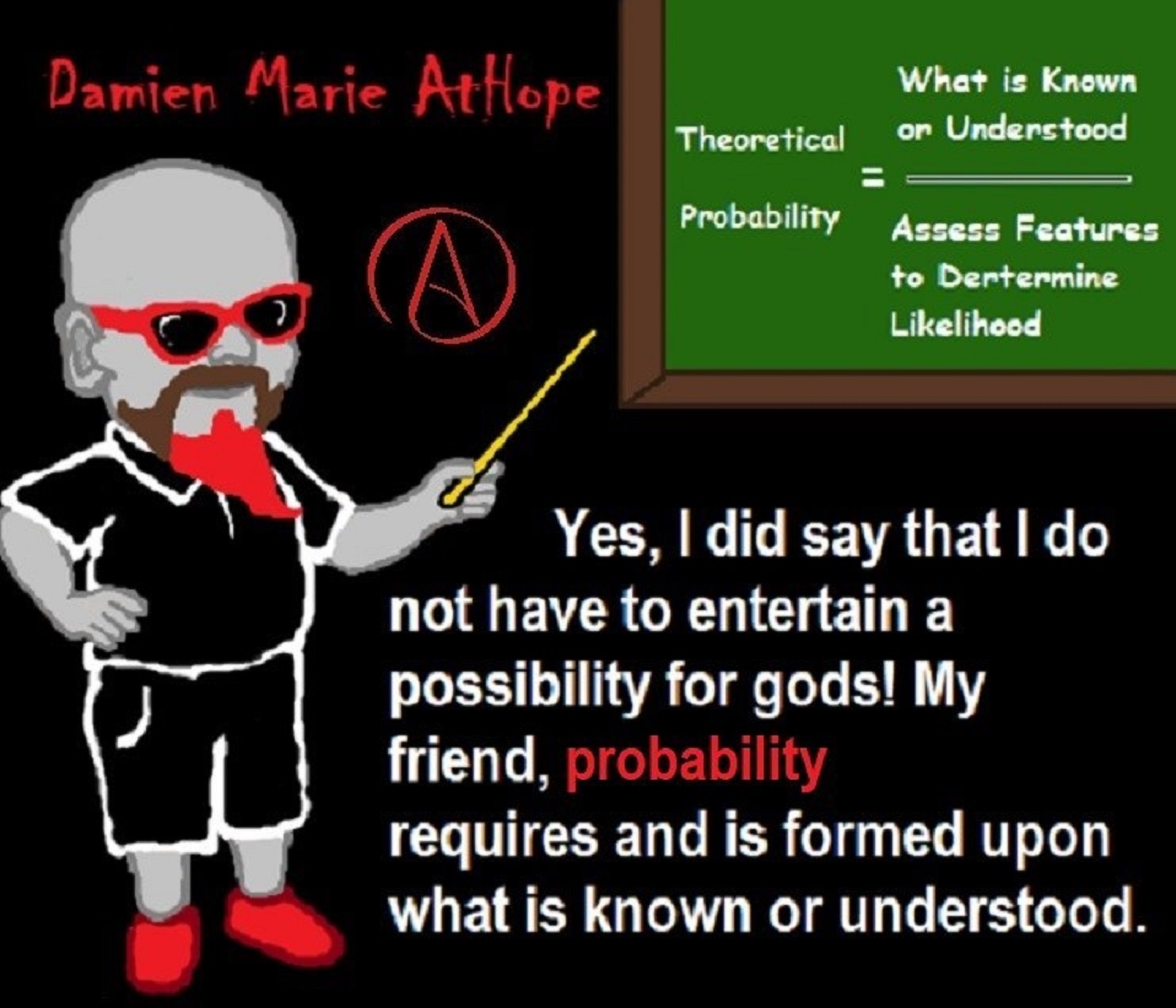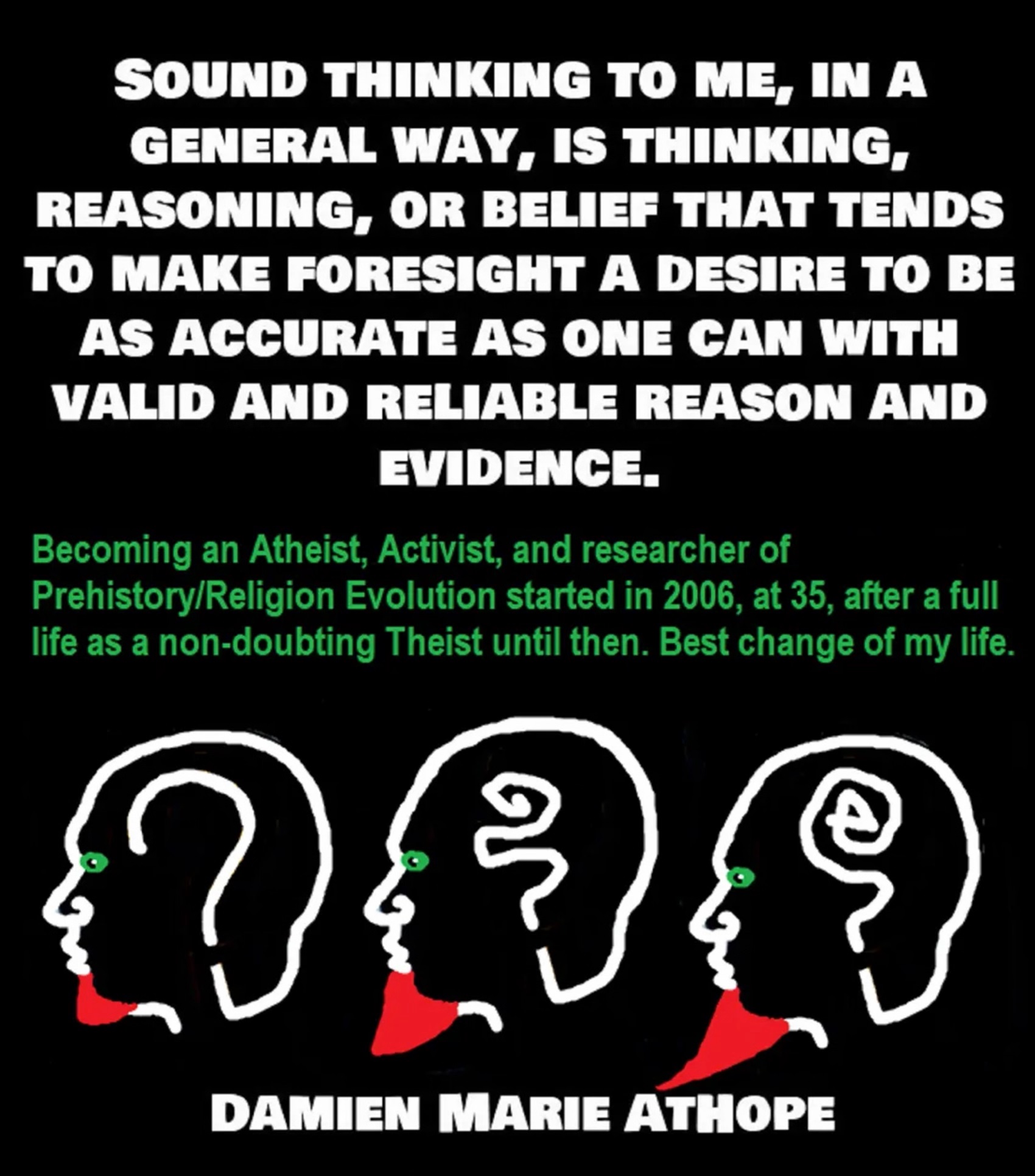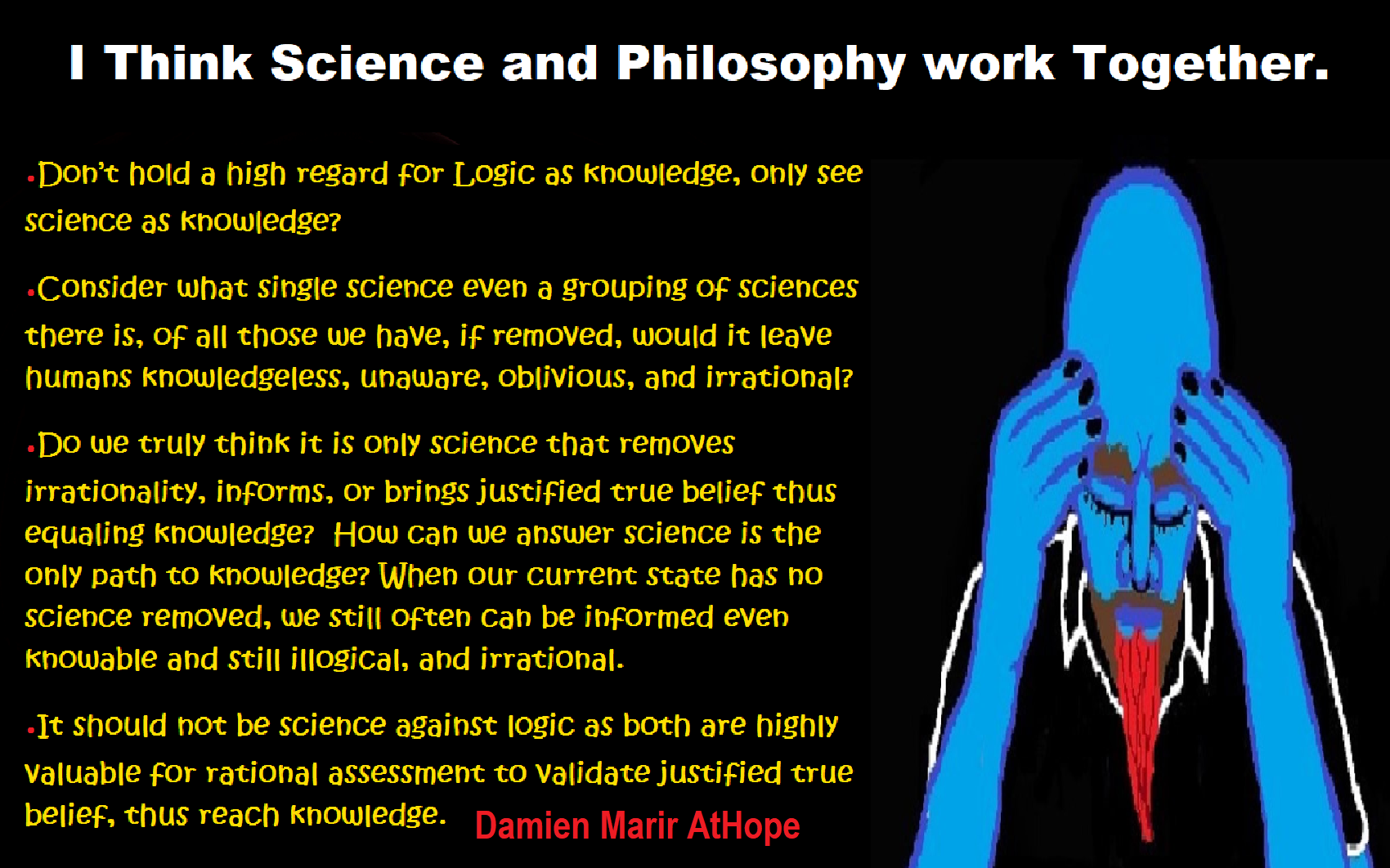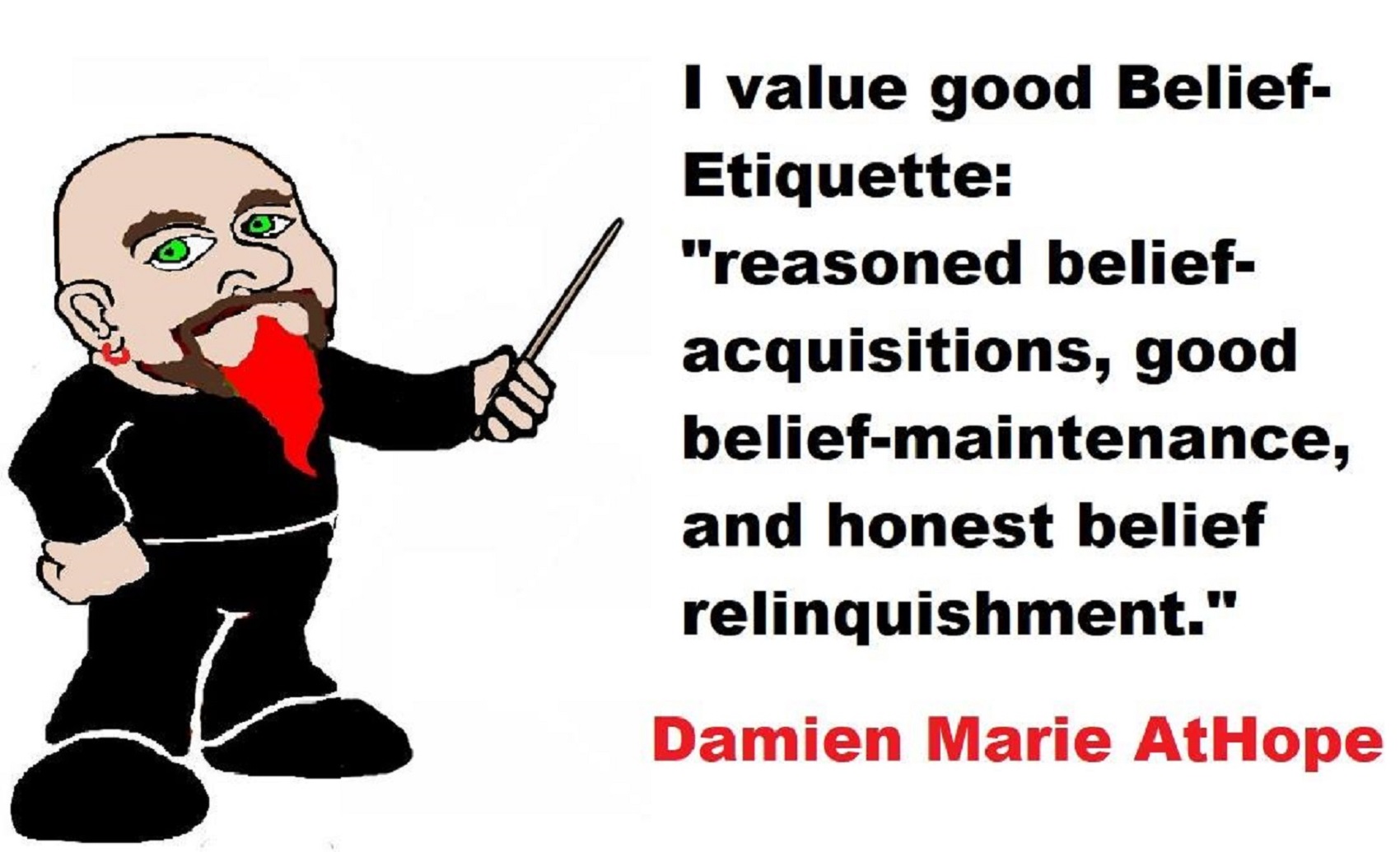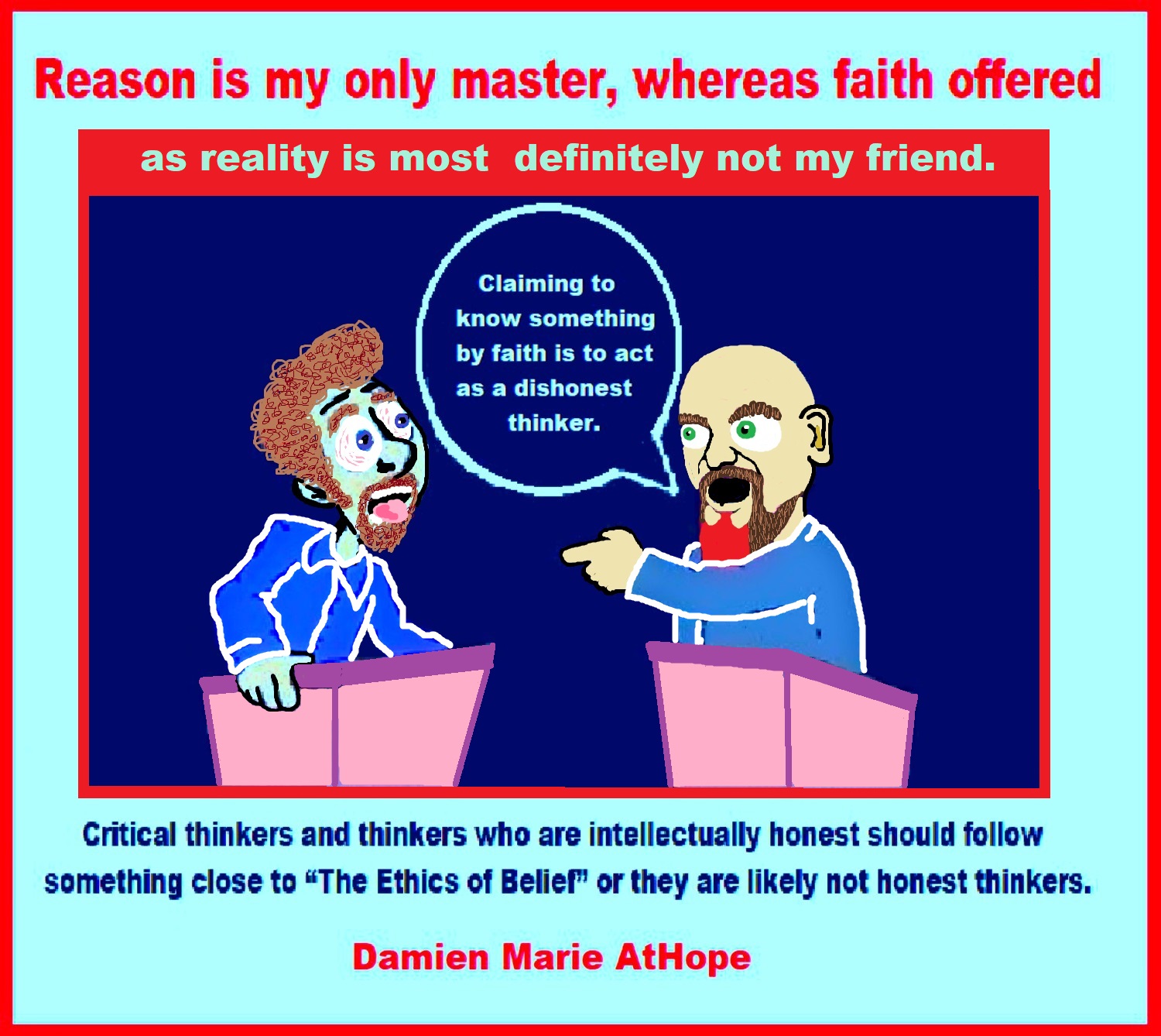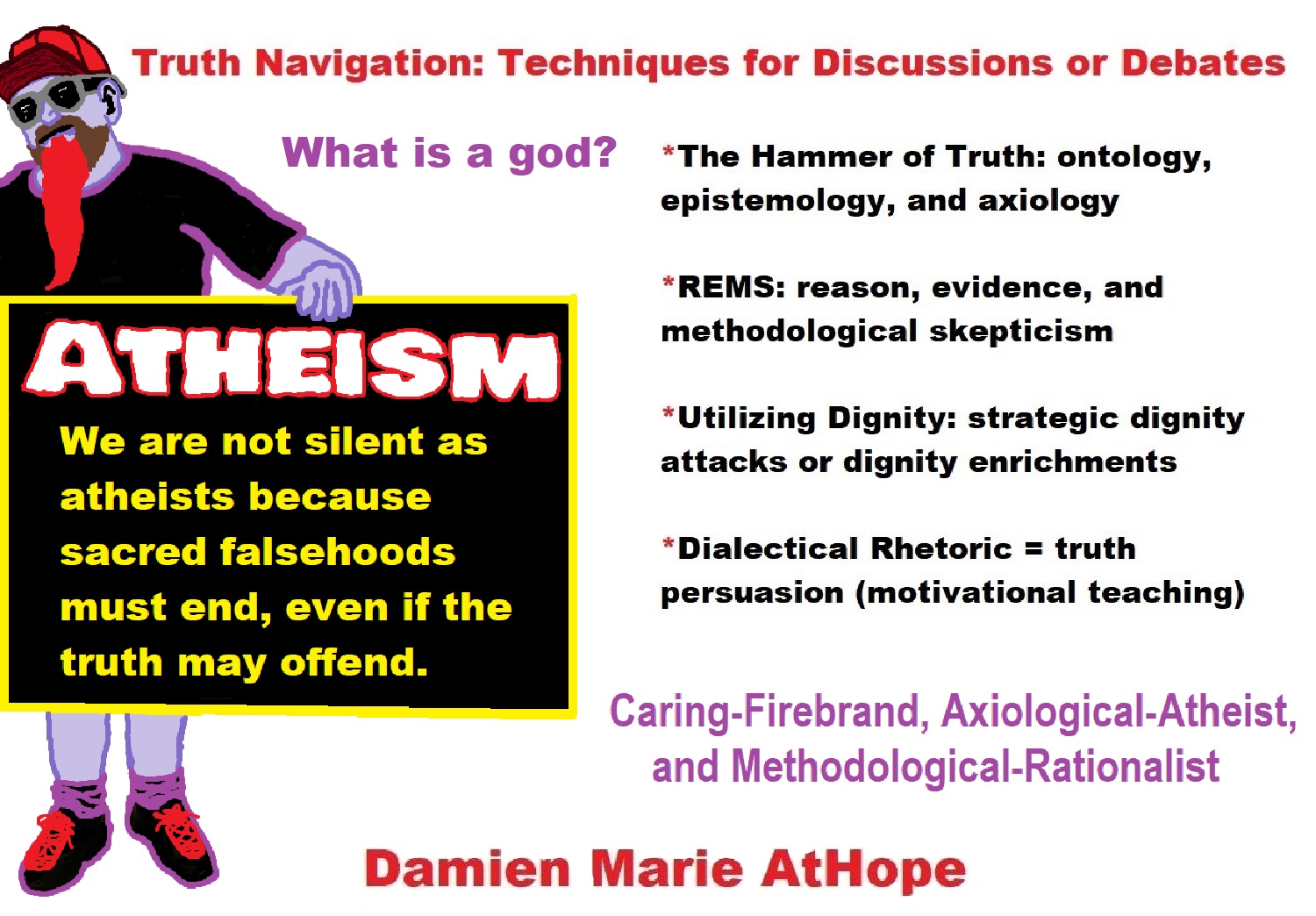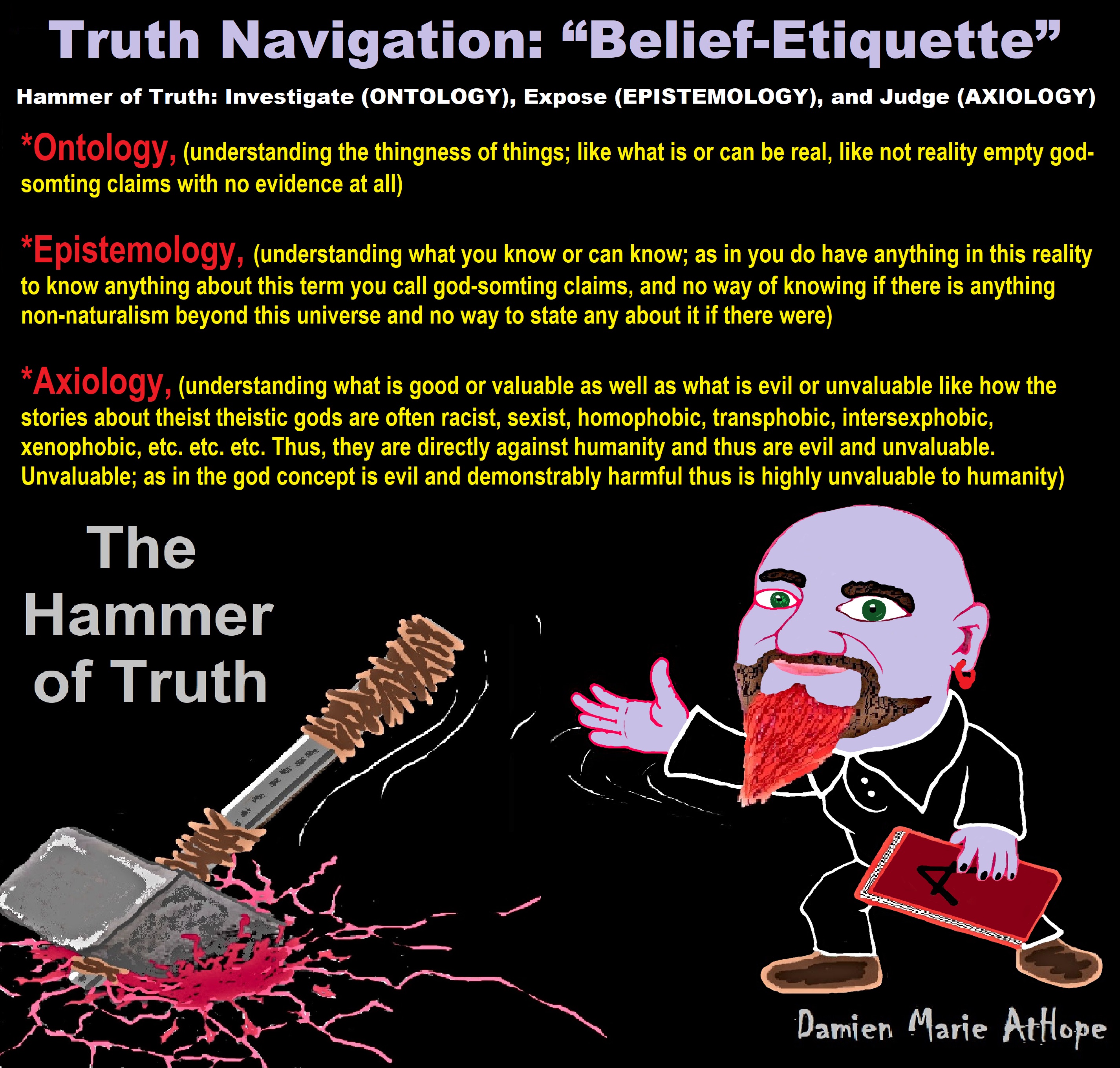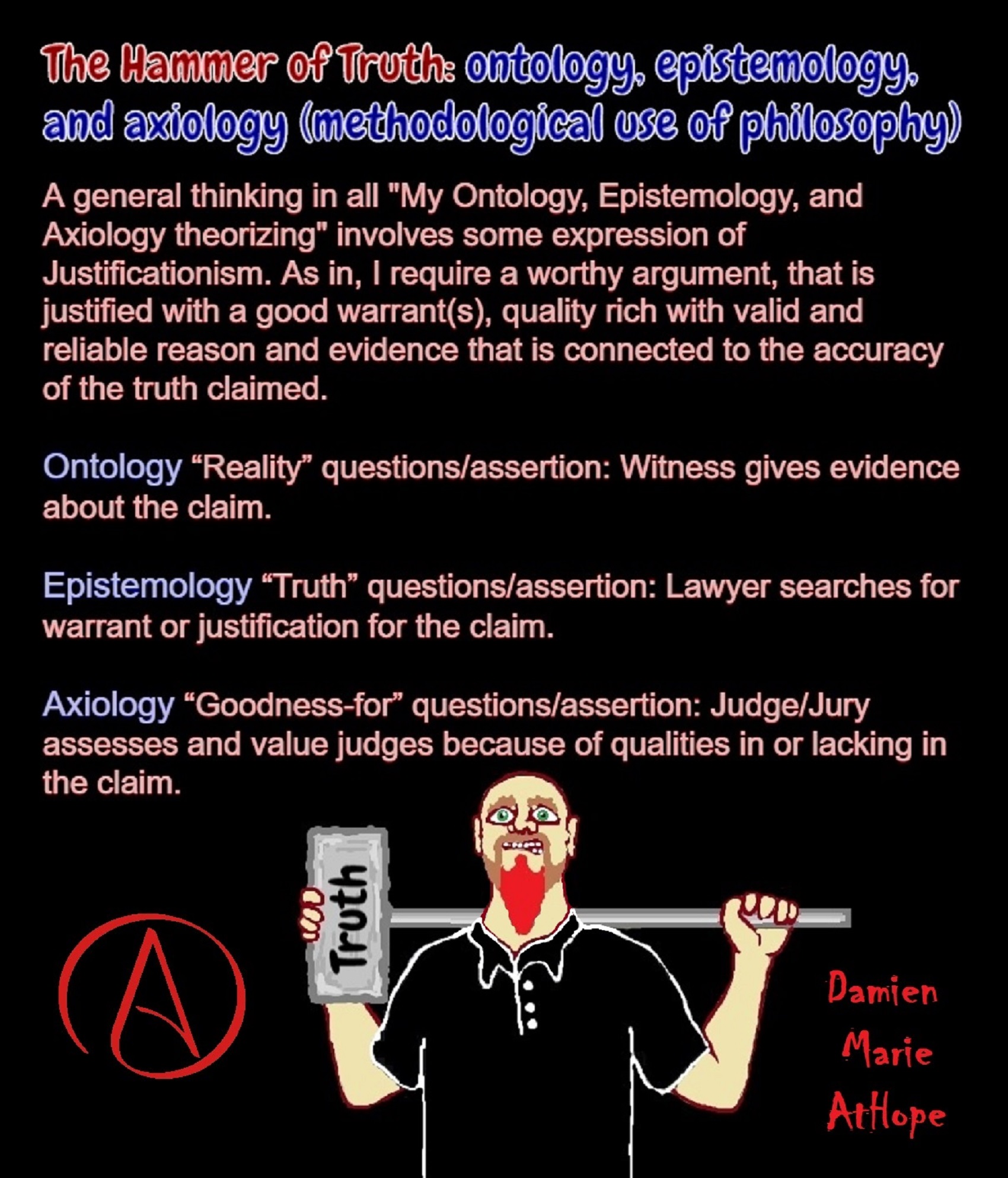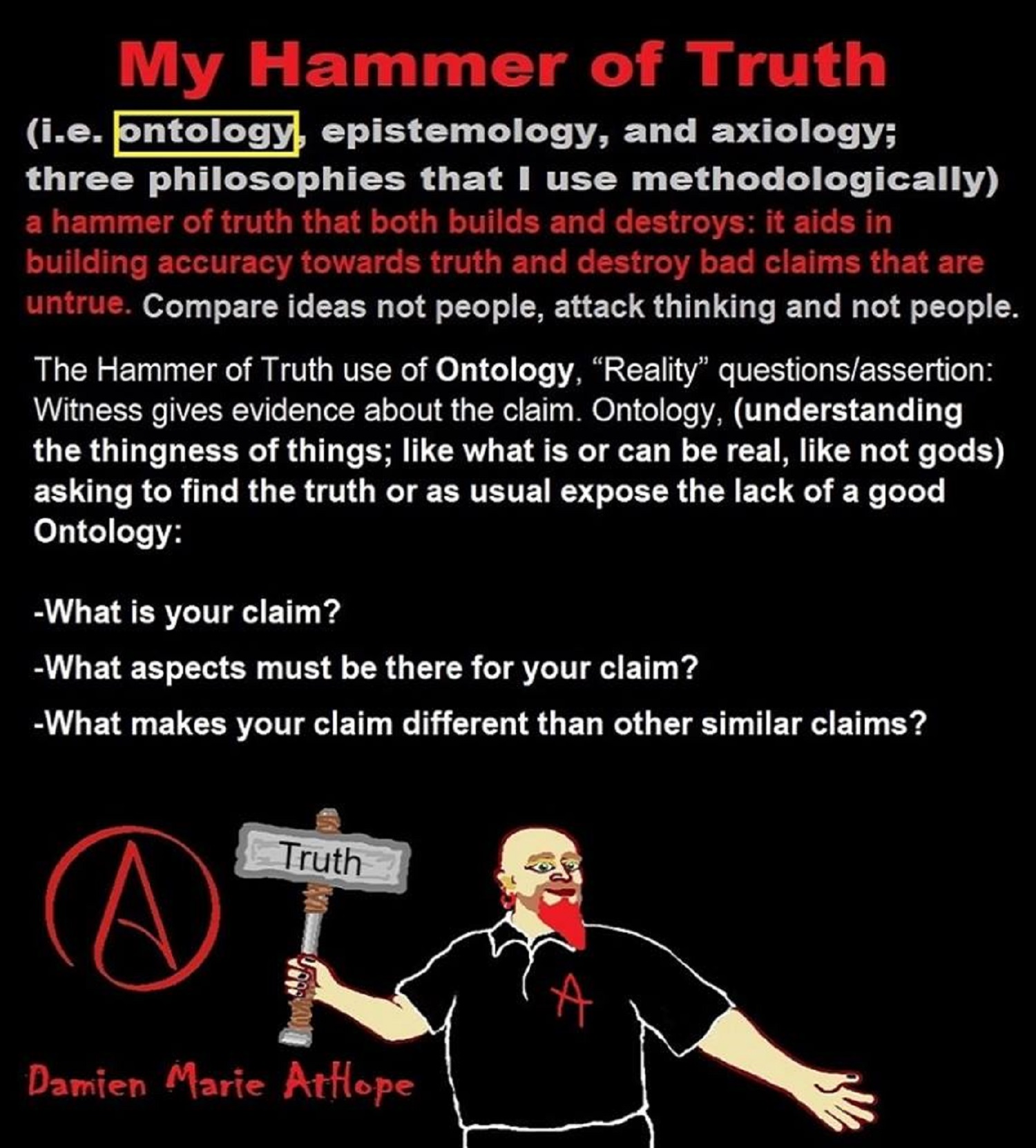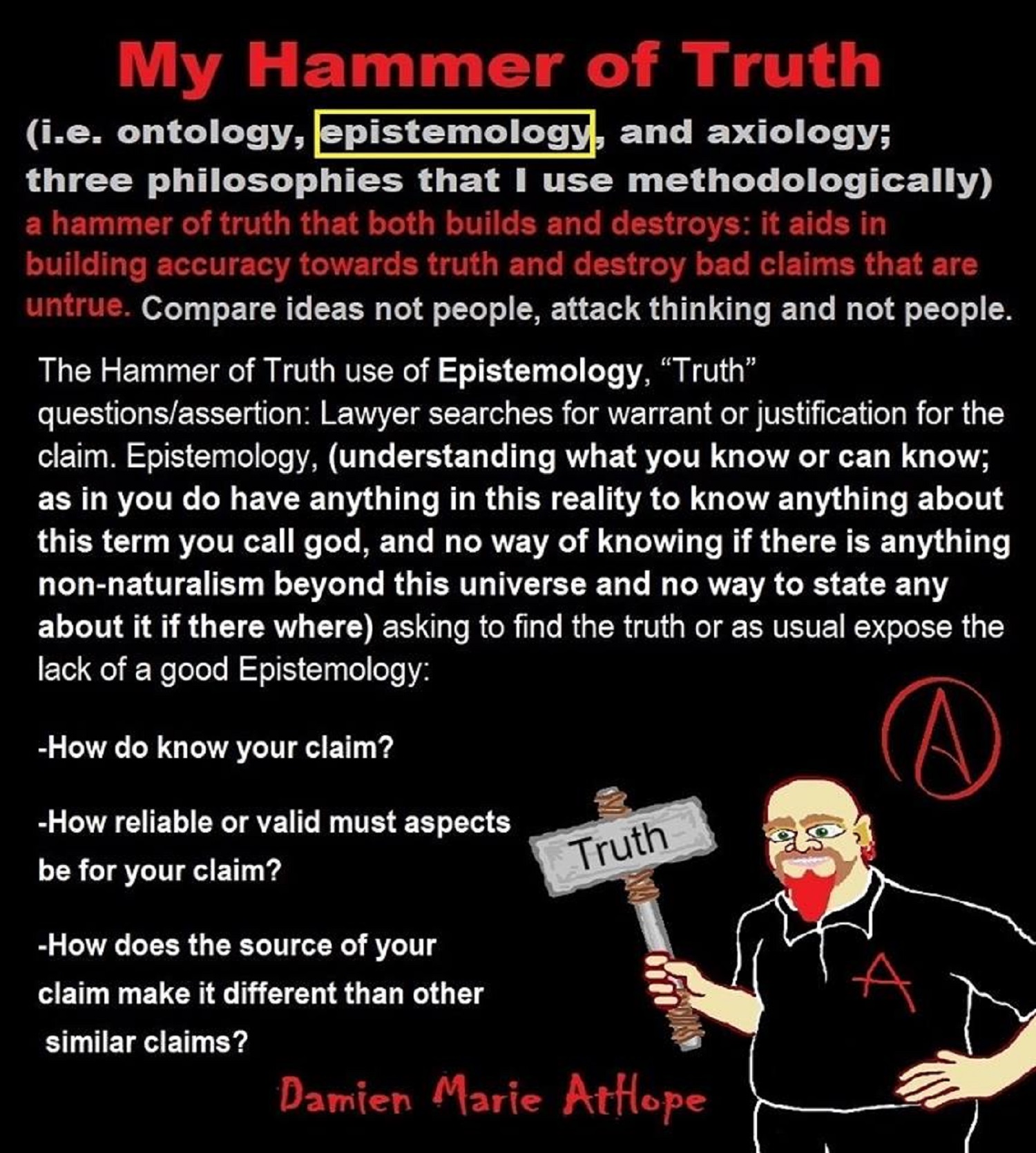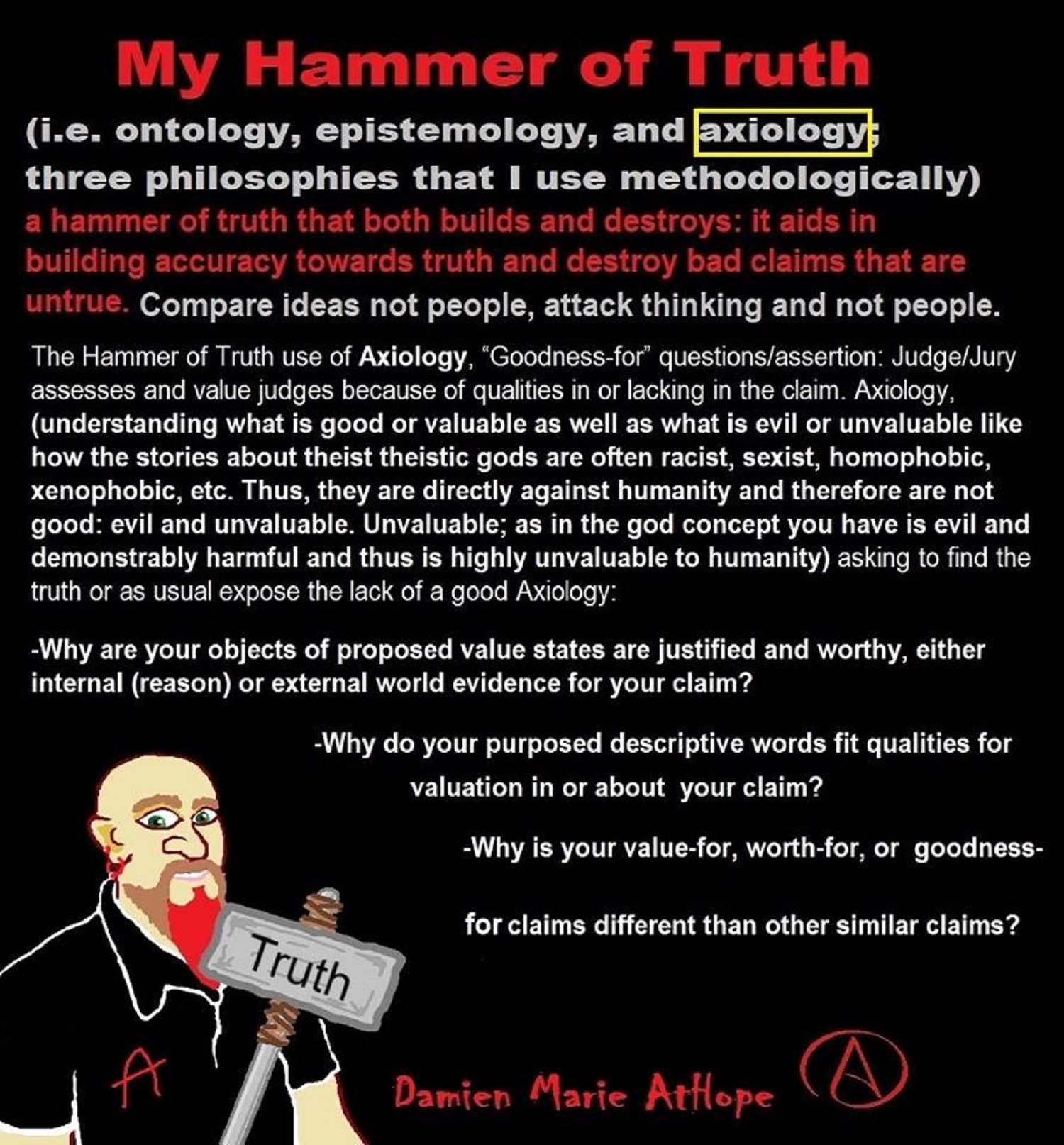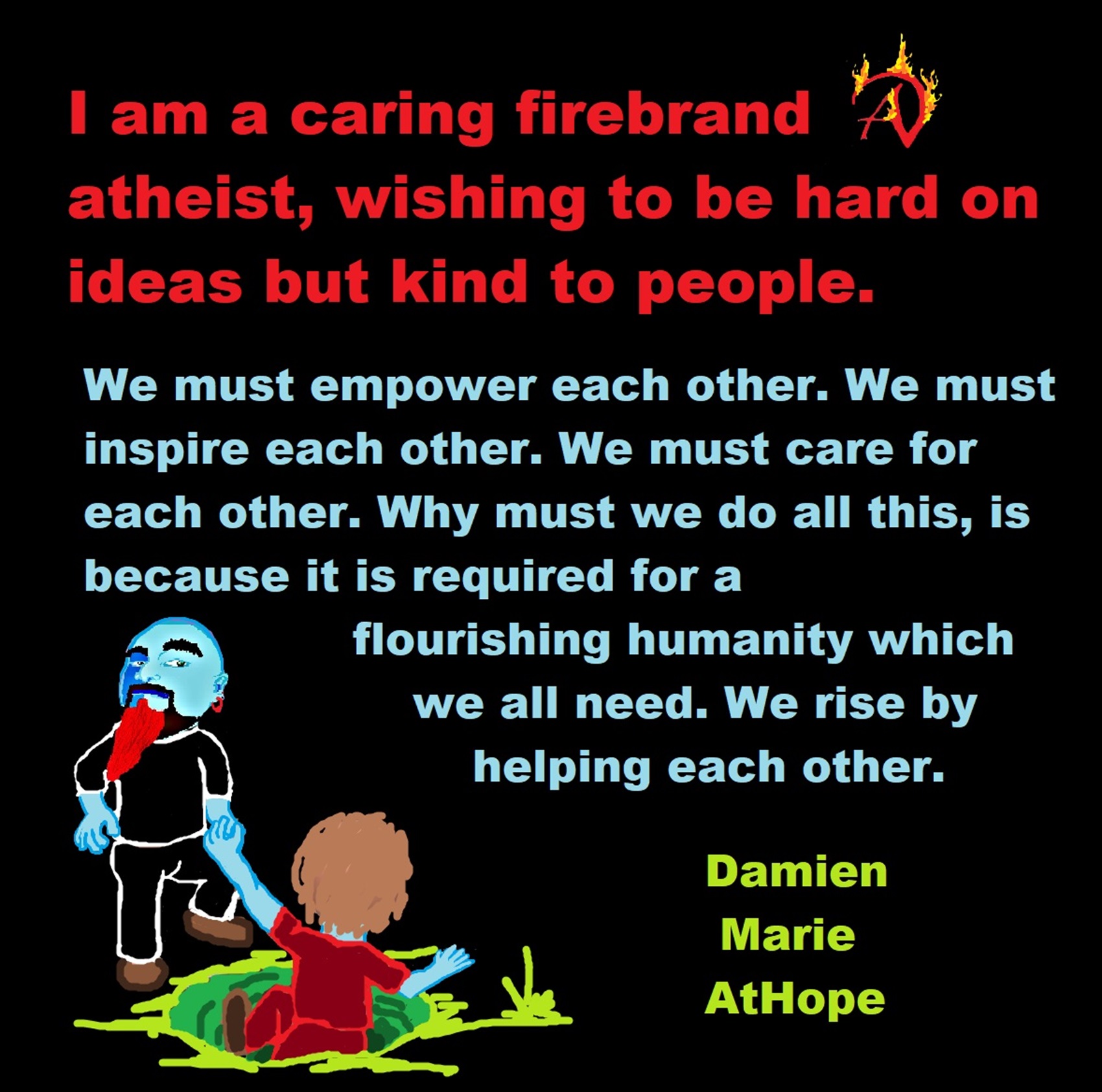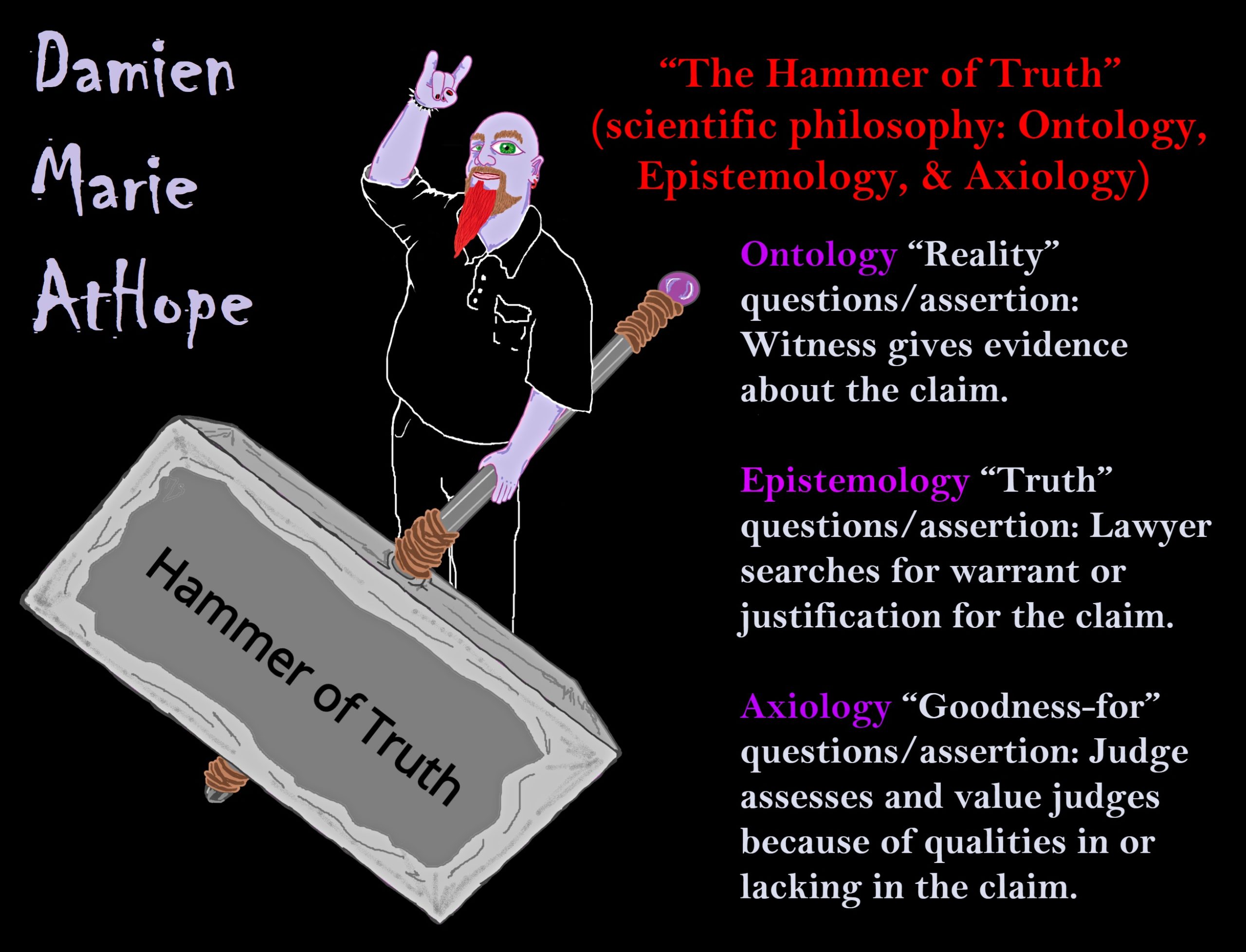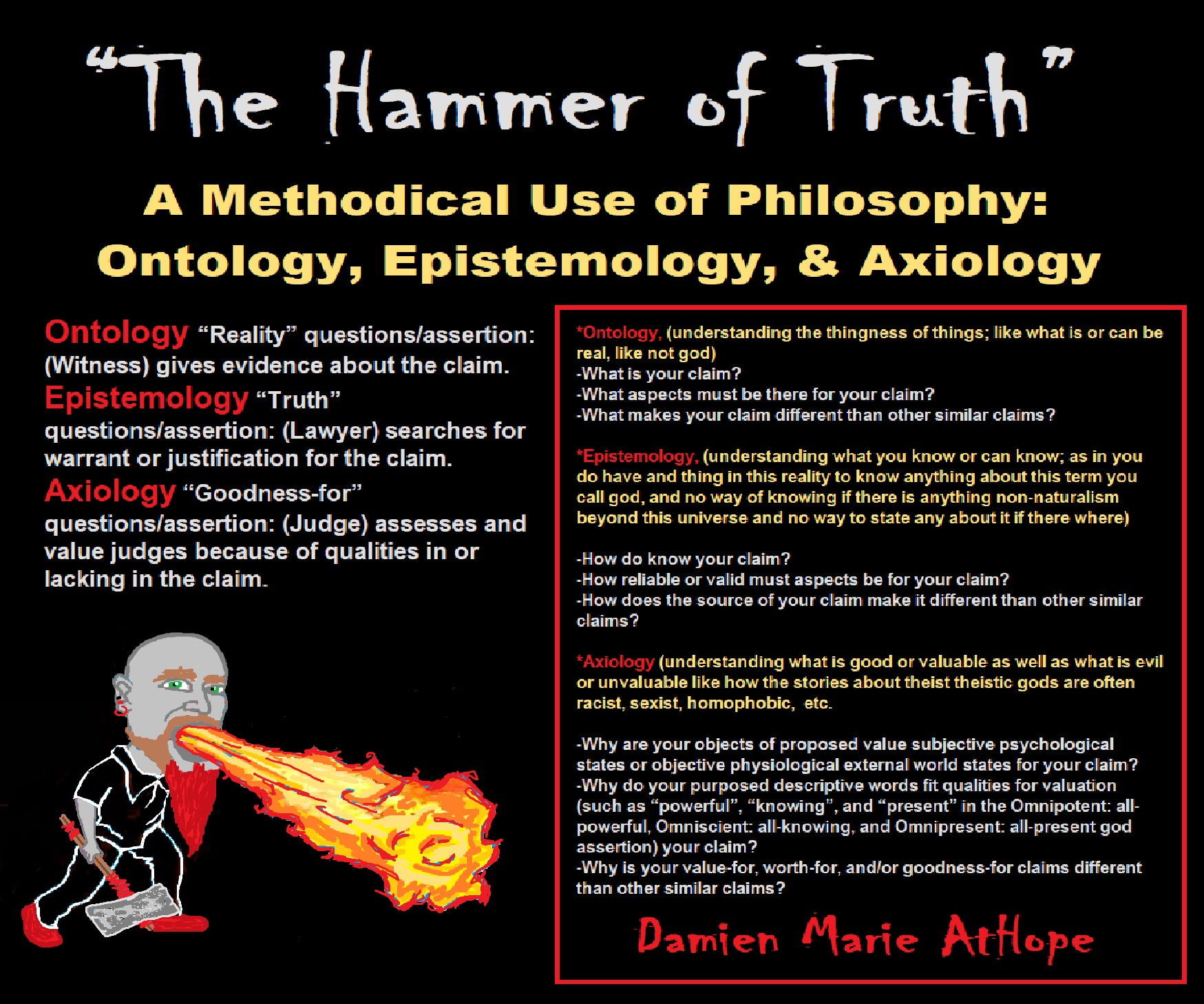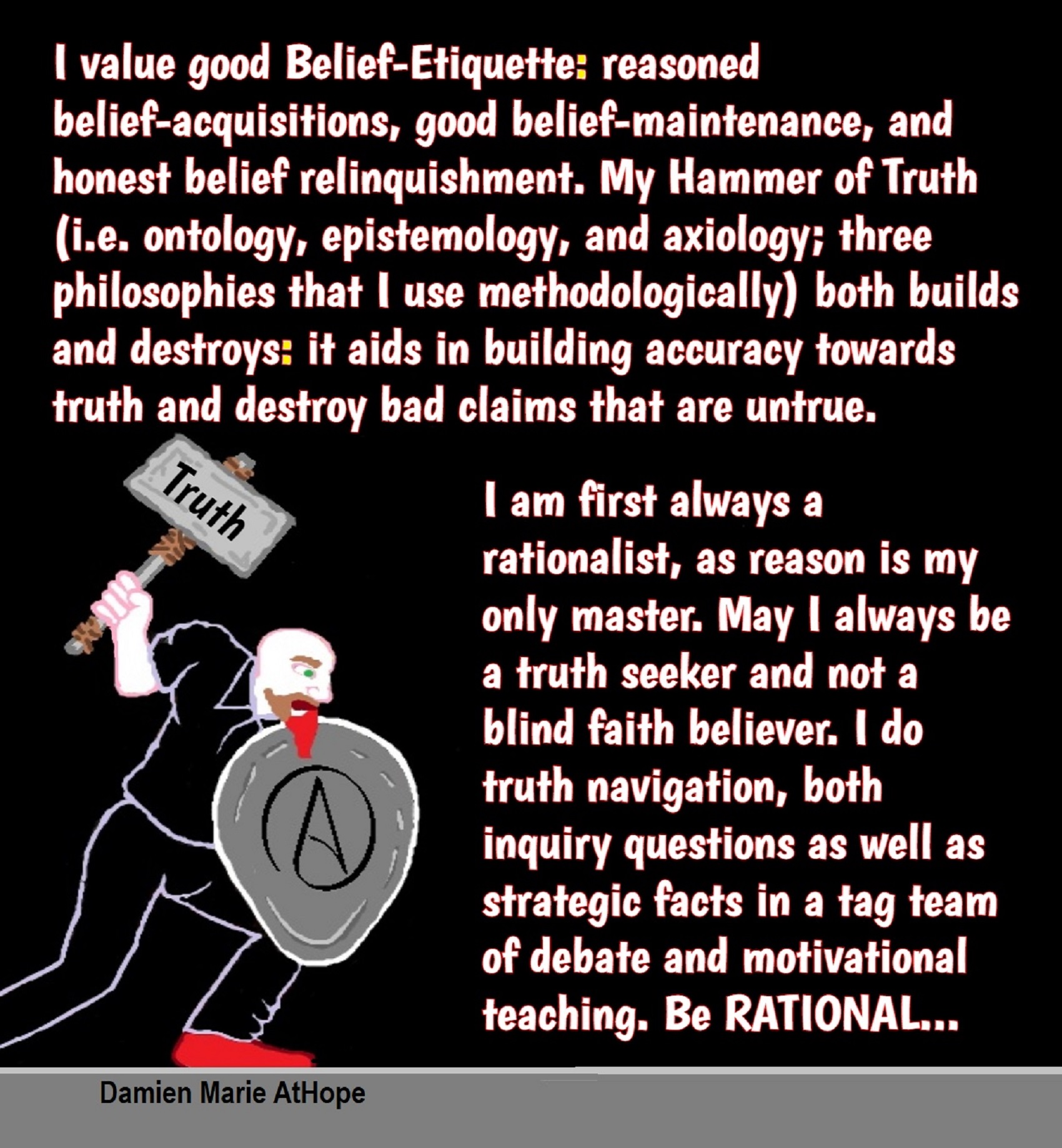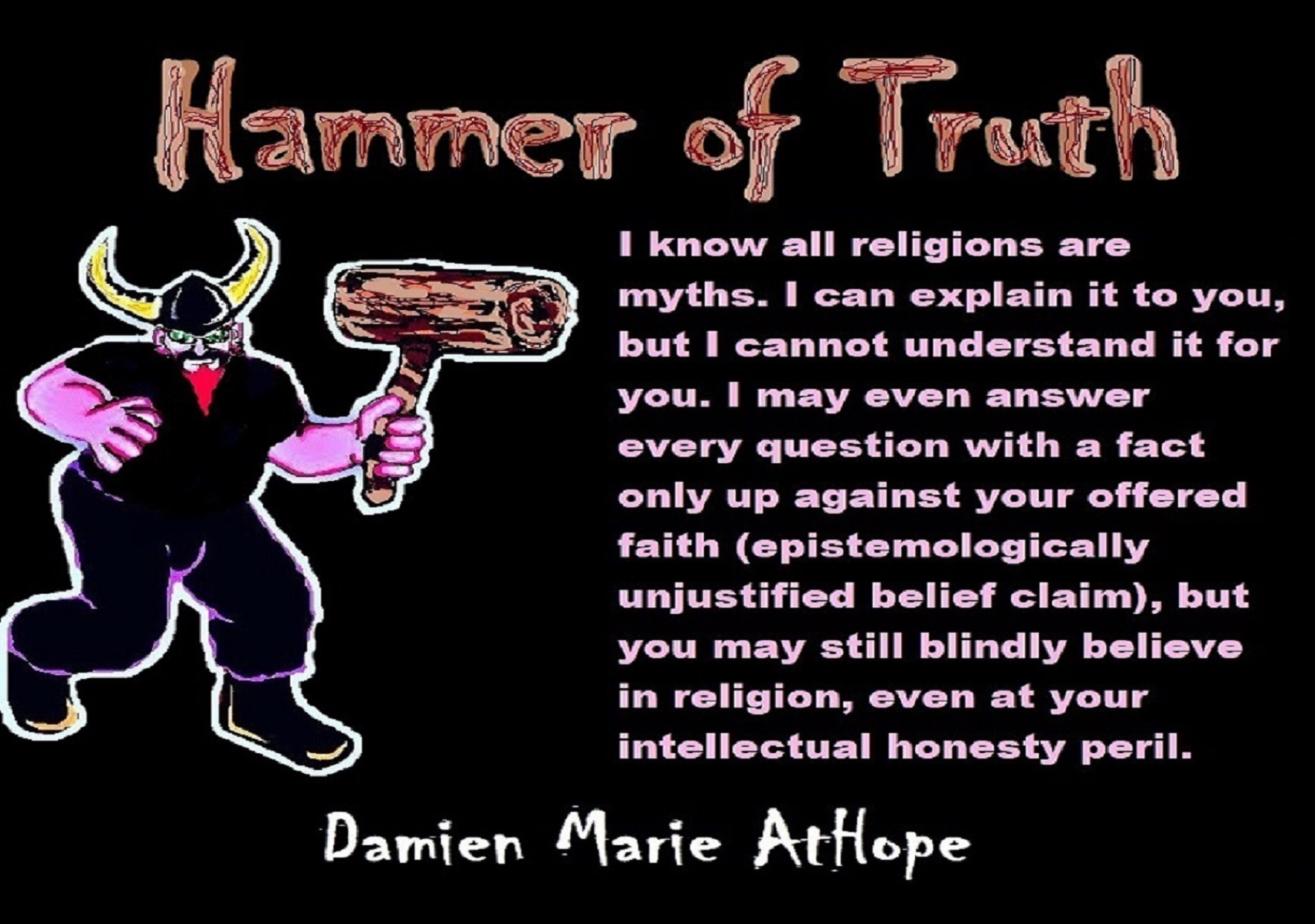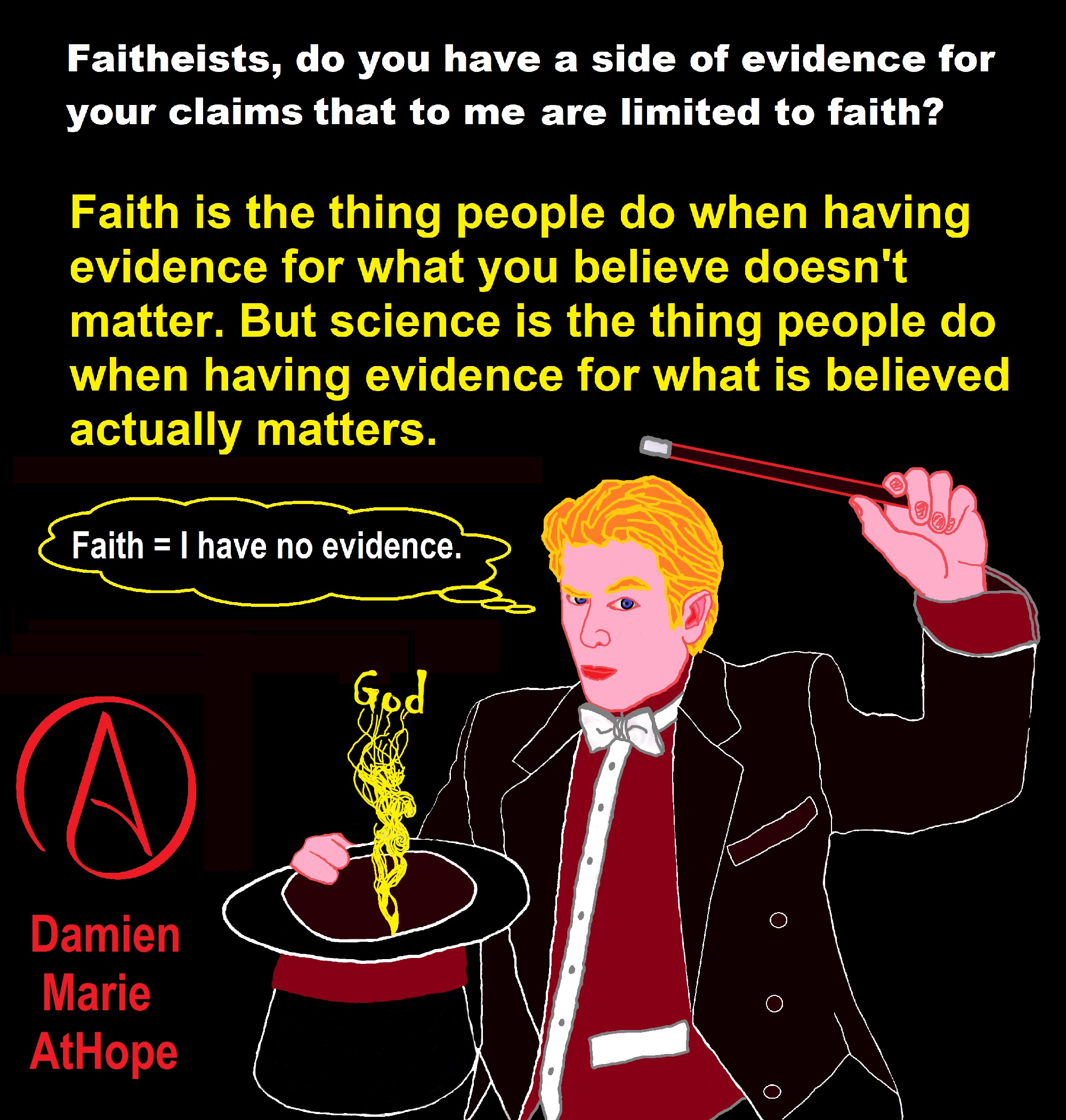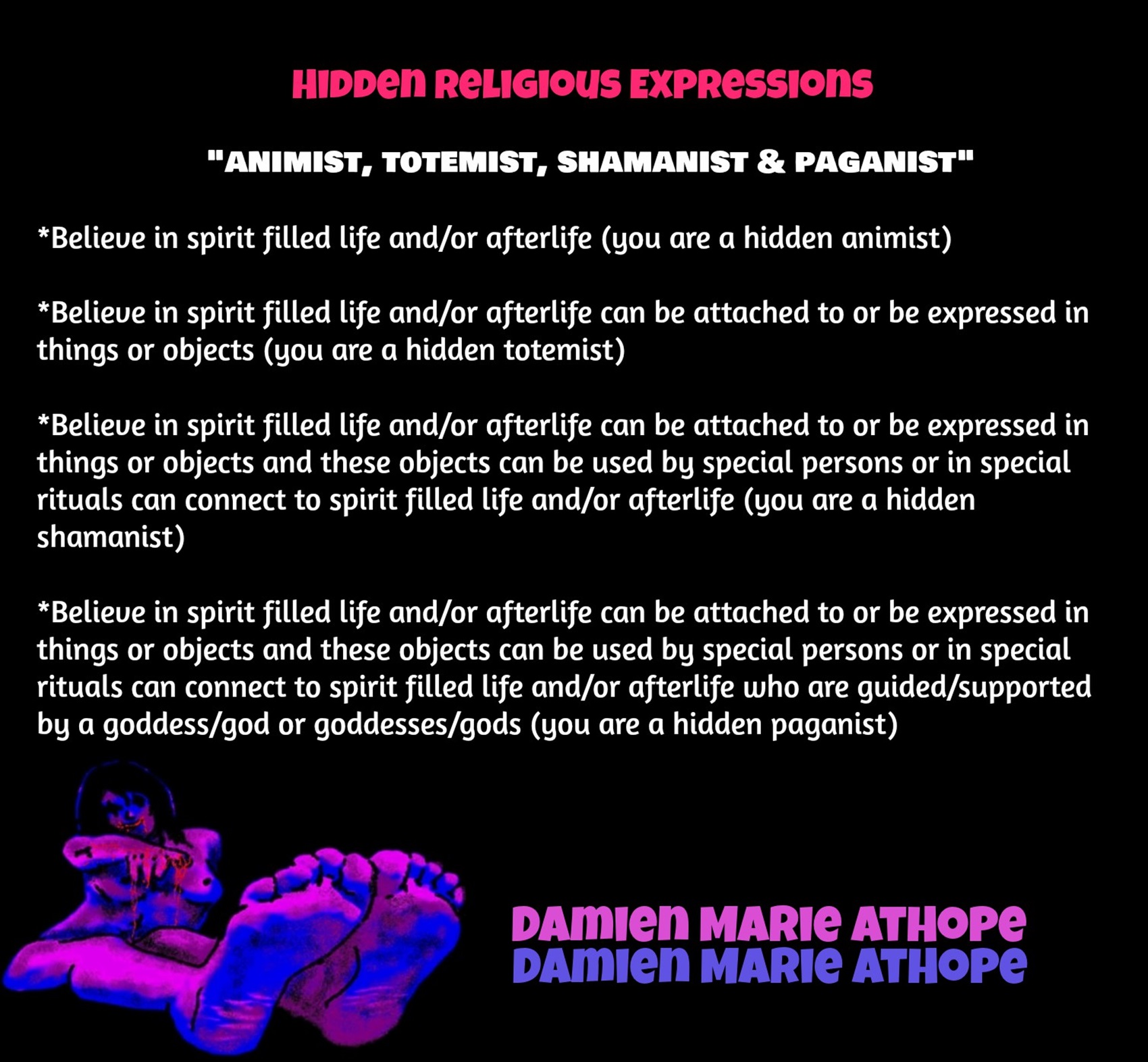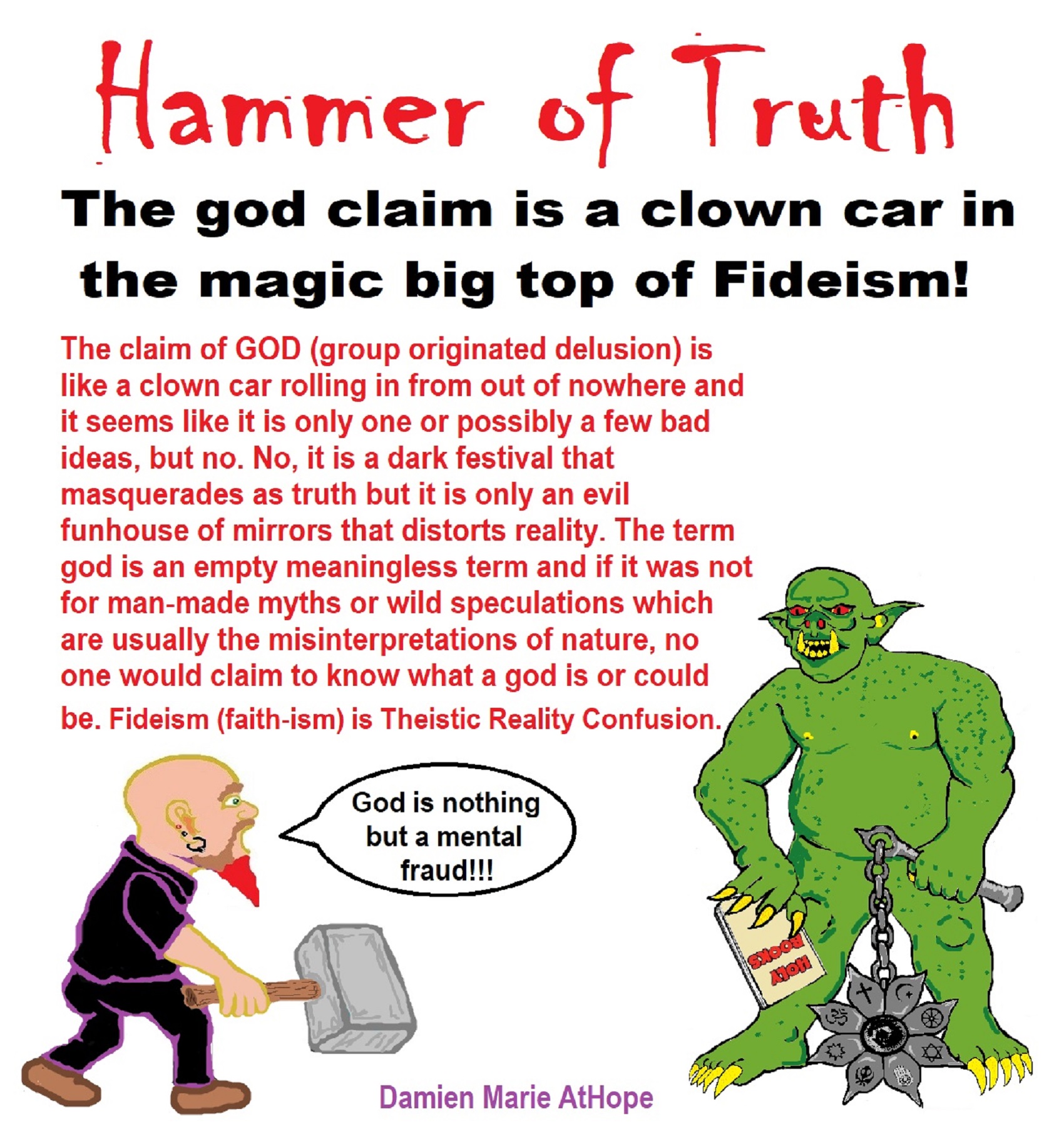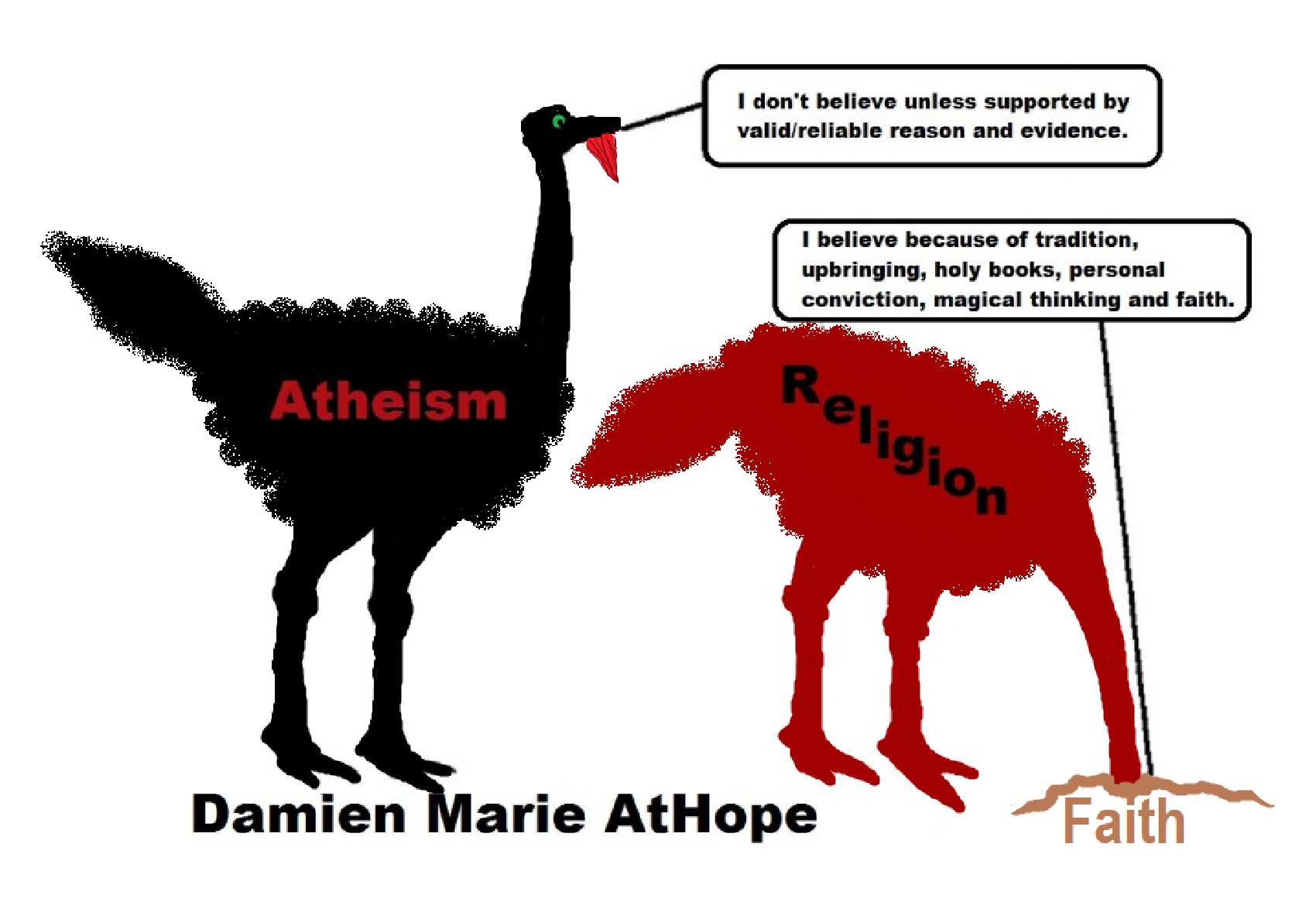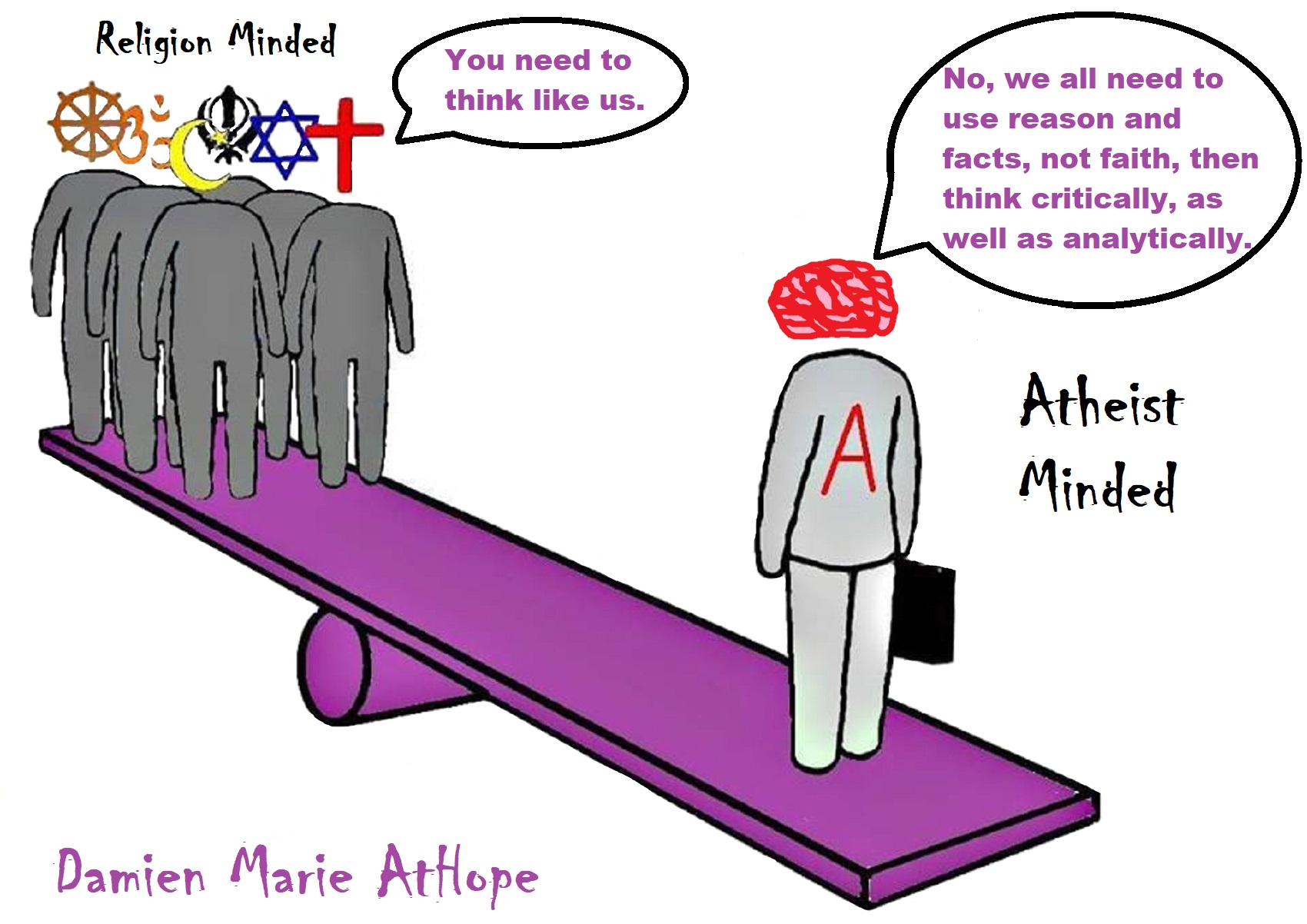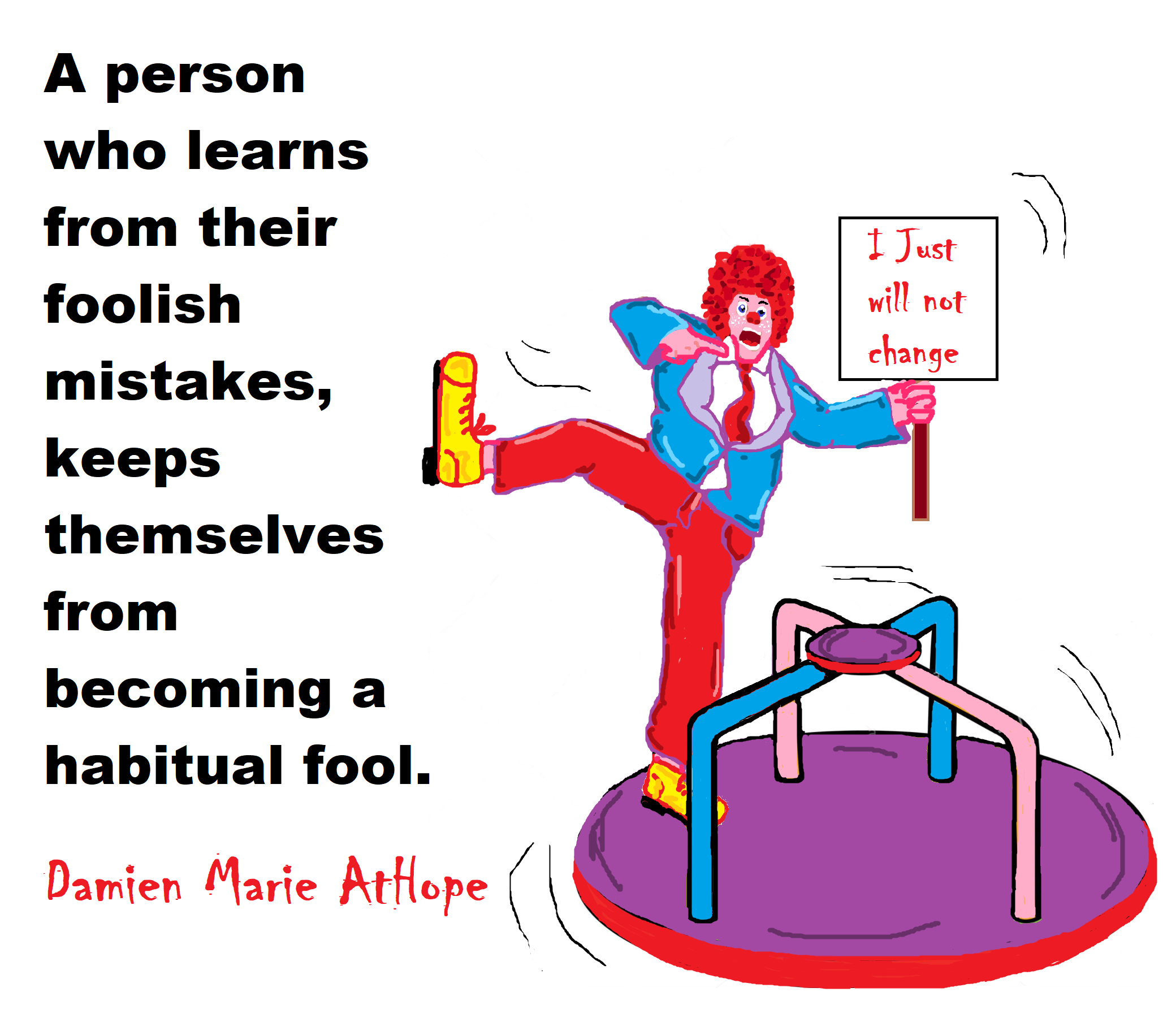
A deduction is a discourse [logos] in which, certain things having been stated, something other than what is stated follows of necessity from their being so. (Prior Analytics I.1, 24b)
Given a certain set of premises, deductive inference should allow one to draw conclusions which are “something other than” the statements with which one begins. According to modern logical jargon, validity is a property of an argument, such that an argument is said to be valid when its conclusions follow from its premises. According to this narrow definition, “Circular reasoning”, “begging the question,” or (to be latin about it) “petitio principii” is in fact a valid form of argument, but only in a trivial and vacuous sense. Such arguments only restate what they had assumed from the outset; thus undermining the very purpose of a logical argument.
It is easy to see both the validity and the vacuity of such a syllogism if we examine its simplest form:
A is B. (Premise)
Therefore, A is B. (Conclusion which is "circular" because it only restates what was already assumed.)
An argument is valid just so long as the conclusion follows from the premises, and the above syllogism obviously satisfies this condition. However, an argument which begs the question is still considered to be fallacious because it cannot be used to prove or demonstrate anything. Searching google scholar for “begging the question” returns numerous articles. You may also want to consider taking a basic course in formal logic or reading an introductory book on the subject. There are different conceptions of reason and logic according to which “circularity” of a certain sort is not problematic. Hegel, for instance, often talks in terms of circular movements of consciousness and reason, but this arises from a vastly different understanding of reason than we’ve discussed above. You might also want to investigate the idea of the “Hermeneutic Circle”, which develops a logic of interpretive reflexivity founded on a divergent view of truth. As far as I know, every careful and earnest thinker recognizes that, within the purview of deductive logic, circular reasoning is a sign of carelessness and is completely useless. Those that embrace some kind of circular reasoning do so only as a result of careful and deeply considered (which is not to say “accurate” or “correct”) reconceptualization of the basic terms of philosophy.
Getting Real with Logic
Logic is the result of rationalism, as what do you think gets you to logic if not starting at reason? I want to hear your justification for your claims, all the presuppositions you are evading to explain the links in your claims of truth. As it is invalid to just claim this without a justification for your professed claims and the presupposing you do to get there, that is not trying to use rationalism to refuse rationalist thinking. How are you making the statement and not appearing to what is the rationale behind it?
If not, you must want to think “Logic is self-generating as valid” and this understood value is to you not reducible to reason? You are devoid of an offer of your burden of proof, first just try to keep up with the thinker’s responsibility to provide more than unjustified claims. Logic is derived by axioms and thus using rationalism to validate them, think otherwise provide your proof. My Rationalism: is two things externalistic “scientific rationalism” a belief or theory that opinions and actions should be based on reason and knowledge rather than on religious belief or emotional response. And internalistic “philosophic rationalism” the theory that reason is the most base presupposition before all others, rather than simply trying to rely on experience is the foundation of certainty in knowledge. Activating experience occurs we then have thinking, right (methodological) thinking (critical thinking) is reason, right reason is logic, right logic can be used for math, right math in response to the natural world is physics, and from there all other Sciences, physics is the foundation for chemistry and chemistry is the foundation of biology. May reason be your only master and may you also master reason.
Science is a multidisciplinary methodological quest for truth.
Science is understanding what is, while religion is wishing on what is not.
As a rationalist, I want you to deeply think and not just simply doubt.
“Scientific realism is a positive epistemic attitude towards the content of our best theories and models, recommending belief in both observable and unobservable aspects of the world described by the sciences.” Ref
“Scientific realism is, at the most general level, the view that the world described by science is the real world as it is, independent of what it might be taken to be. Within philosophy of science, it is often framed as an answer to the question “how is the success of science to be explained?” The debate over the success of science in this context centers primarily on the status of unobservable entities apparently talked about by scientific theories. Generally, those who are scientific realists assert that one can make valid claims about unobservables (viz., that they have the same ontological status) as observables, as opposed to instrumentalism. Scientific realism involves the two basic positions. First, it is a set of claims about the features of an ideal scientific theory; an ideal theory is the sort of theory science aims to produce. Second, it is the commitment that science will eventually produce theories very much like an ideal theory and that science has done pretty well thus far in some domains. It is important to note that one might be a scientific realist regarding some sciences while not being a realist regarding others. For example, one might hold realist attitudes toward physics, chemistry and biology, and not toward economics, psychology, and sociology.” Ref
What is Scientific Realism?
Epistemic Achievements versus Epistemic Aims
According to Anjan Chakravartty with The Stanford Encyclopedia of Philosophy, “It is perhaps only a slight exaggeration to say that scientific realism is characterized differently by every author who discusses it, and this presents a challenge to anyone hoping to learn what it is. Fortunately, underlying the many idiosyncratic qualifications and variants of the position, there exists a common core of ideas, typified by an epistemically positive attitude towards the outputs of scientific investigation, regarding both observable and unobservable aspects of the world. The distinction here between the observable and the unobservable reflects human sensory capabilities: the observable is that which can, under favorable conditions, be perceived using the unaided senses (for example, planets and platypuses); the unobservable is that which cannot be detected this way (for example, proteins and protons). This is to privilege vision merely for terminological convenience and differs from scientific conceptions of observability, which generally extend to things that are detectable using instruments (Shapere 1982). The distinction itself has been problematized (Maxwell 1962, Churchland 1985, Musgrave 1985, Dicken & Lipton 2006), but if it is problematic, this is arguably a concern primarily for certain forms of antirealism, which adopt an epistemically positive attitude only with respect to the observable. It is not ultimately a concern for scientific realism, which does not discriminate epistemically between observables and unobservables per se. Before considering the nuances of what scientific realism entails, it is useful to distinguish between two different kinds of definition in this context. Most commonly, the position is described in terms of the epistemic achievements constituted by scientific theories (and models—this qualification will be taken as given henceforth). On this approach, scientific realism is a position concerning the actual epistemic status of theories (or some components thereof), and this is described in a number of ways. For example, most define scientific realism in terms of the truth or approximate truth of scientific theories or certain aspects of theories. Some define it in terms of the successful reference of theoretical terms to things in the world, both observable and unobservable. (A note about the literature: ‘theoretical term’, prior to the 1980s, was standardly used to denote terms for unobservables, but will be used here to refer to any scientific term, which is now the more common usage.) Others define scientific realism not in terms of truth or reference, but in terms of belief in the ontology of scientific theories. What all of these approaches have in common is a commitment to the idea that our best theories have a certain epistemic status: they yield knowledge of aspects of the world, including unobservable aspects. (For definitions along these lines, see Smart 1963, Boyd 1983, Devitt 1991, Kukla 1998, Niiniluoto 1999, Psillos 1999, and Chakravartty 2007a.) Another way to think about scientific realism is in terms of the epistemic aims of scientific inquiry (van Fraassen 1980, p. 8, Lyons 2005). That is, some think of the position in terms of what science aims to do: the scientific realist holds that science aims to produce true descriptions of things in the world (or approximately true descriptions, or ones whose central terms successfully refer, and so on). There is a weak implication here to the effect that if science aims at truth and scientific practice is at all successful, the characterization of scientific realism in terms of aim may then entail some form of characterization in terms of achievement. But this is not a strict implication, since defining scientific realism in terms of aiming at truth does not, strictly speaking, suggest anything about the success of scientific practice in this regard. For this reason, some take the aspirational characterization of scientific realism to be too weak (Kitcher 1993, p. 150, Devitt 2005, n. 10, Chakravartty 2007b, p. 197)—it is compatible with the sciences never actually achieving, and even the impossibility of their achieving, their aim as conceived on this view of scientific realism. Most scientific realists commit to something more in terms of achievement, and this is assumed in what follows.” Ref
The Three Dimensions of Realist Commitment
According to Anjan Chakravartty with The Stanford Encyclopedia of Philosophy, “The description of scientific realism as a positive epistemic attitude towards theories, including parts putatively concerning the unobservable, is a kind of shorthand for more precise commitments (Kukla 1998, ch. 1, Niiniluoto 1999, ch. 1, Psillos 1999, Introduction, Chakravartty 2007a, ch. 1). Traditionally, realism more generally is associated with any position that endorses belief in the reality of something. Thus, one might be a realist about one’s perceptions of tables and chairs (sense datum realism), or about tables and chairs themselves (external world realism), or about mathematical entities such as numbers and sets (mathematical realism), and so on. Scientific realism is a realism about whatever is described by our best scientific theories—from this point on, ‘realism’ here denotes scientific realism. But what, more precisely, is that? In order to be clear about what realism in the context of the sciences amounts to, and to differentiate it from some important antirealist alternatives, it is useful to understand it in terms of three dimensions: a metaphysical (or ontological) dimension; a semantic dimension; and an epistemological dimension. Metaphysically, realism is committed to the mind-independent existence of the world investigated by the sciences. This idea is best clarified in contrast with positions that deny it. For instance, it is denied by any position that falls under the traditional heading of ‘idealism’, including some forms of phenomenology, according to which there is no world external to and thus independent of the mind. This sort of idealism, though historically important, is rarely encountered in contemporary philosophy of science, however. More common rejections of mind-independence stem from neo-Kantian views of the nature of scientific knowledge, which deny that the world of our experience is mind-independent, even if (in some cases) these positions accept that the world in itself does not depend on the existence of minds. The contention here is that the world investigated by the sciences—as distinct from “the world in itself” (assuming this to be a coherent distinction)—is in some sense dependent on the ideas one brings to scientific investigation, which may include, for example, theoretical assumptions and perceptual training; this proposal is detailed further in section 4. It is important to note in this connection that human convention in scientific taxonomy is compatible with mind-independence. For example, though Psillos (1999, p. xix) ties realism to a ‘mind-independent natural-kind structure’ of the world, Chakravartty (2007a, ch. 6) argues that mind-independent properties are often conventionally grouped into kinds (see also Boyd 1991 and Humphreys 2004, pp. 22–25, 35–36). Semantically, realism is committed to a literal interpretation of scientific claims about the world. In common parlance, realists take theoretical statements at “face value”. According to realism, claims about scientific entities, processes, properties, and relations, whether they be observable or unobservable, should be construed literally as having truth values, whether true or false. This semantic commitment contrasts primarily with those of so-called instrumentalist epistemologies of science, which interpret descriptions of unobservables simply as instruments for the prediction of observable phenomena, or for systematizing observation reports. Traditionally, instrumentalism holds that claims about unobservable things have no literal meaning at all (though the term is often used more liberally in connection with some antirealist positions today). Some antirealists contend that claims involving unobservables should not be interpreted literally, but as elliptical for corresponding claims about observables. Epistemologically, realism is committed to the idea that theoretical claims (interpreted literally as describing a mind-independent reality) constitute knowledge of the world. This contrasts with sceptical positions which, even if they grant the metaphysical and semantic dimensions of realism, doubt that scientific investigation is epistemologically powerful enough to yield such knowledge, or, as in the case of some antirealist positions, insist that it is only powerful enough to yield knowledge regarding observables. The epistemological dimension of realism, though shared by realists generally, is sometimes described more specifically in contrary ways. For example, while many realists subscribe to the truth (or approximate truth) of theories understood in terms of some version of the correspondence theory of truth (as suggested by Fine 1986 and contested by Ellis 1988), some prefer deflationary accounts of truth (including Giere 1988, p. 82, Devitt 2005, and Leeds 2007). Though most realists marry their position to the successful reference of theoretical terms, including those for unobservable entities, processes, properties, and relations (Boyd 1983, and as described by Laudan 1981), some deny that this is a requirement (Cruse & Papineau 2002, Papineau 2010). Amidst these differences, however, a general recipe for realism is widely shared: our best scientific theories give true or approximately true descriptions of observable and unobservable aspects of a mind-independent world.” Ref
No, science CAN NOT be with religion.
Science is a method to understand the world as it is, which is naturalistic only, not one shred of magic. In fact, the scientific method assumes Methodological Naturalism, because that is all that has ever been found and is the most likely thing that ever will be found. As religion is not intended to represent the world as it is but instead what it is not the stupid supernatural, which is the thing of fantasy, wishful thinking, and delusion.
The neuroscience of prejudice and stereotyping
Explaining science to remove MISCONCEPTION
Science Facts Should Make Religious Belief Impossible
Quit Trying to Invent Your God From the Scraps of Science.
Science and Justified True Beliefs
I Hate Religion Just as I Hate Pseudoscience
Creationism is a Debunked Religious Conspiracy Theory.
Rationalism, Freethinker, Humanism & Secular humanism?
I was asked what is a good book on how I use rationalism?
We must not confuse beliefs, religion is beliefs built from myths devoid of corroborating evidence. Science uses corroborating evidence to establish what is true and that offers something worthy to believe.
Religion vs. Science
Don’t Confuse Beliefs
Science is a system where justified true beliefs that are derived from objective methodologies such as the scientific method and religion is a system of unjustified beliefs based on subjective faith or revelation. We must not confuse beliefs, religion is beliefs built from myths devoid of corroborating evidence. Science uses corroborating evidence to establish what is true and that offers something worthy to believe. Modern Science is not a thing, it’s a group of different specialties aiming to test (generally with the scientific method) and try to figure out the world as it presents itself in reality, which is devoid of supernatural magic.
We must not confuse beliefs, religion is beliefs from myths devoid of corroborating evidence or reason. Whereas, science uses as well as demands corroborating evidence and reason to establish what is true and that offers something worthy to believe in. Thus, we have a belief without valid and reliable warrant or justification, so it’s an issue involving religion believers violating the ethics of belief. Do you believe in god? What is a god? When someone asks me if I believe in gods I think, are you asking me if magic exists? Well, my answer as an ignostic atheist is, first prove the actuality of simple magic before you try to ask anyone about the possibility of some supreme magic, i.e. the claims of gods.
So, let’s recap, likely no religion follower is honestly going to stop belief because of lack of evidence or reason, or they would have already done so. Just as no science follower is honestly going to start believing something if it has a lack of evidence or reason. Remember, we honest thinkers need to adhere to beliefs in an ethical way, like exhibit good belief etiquette: reasoned belief-acquisitions, good belief-maintenance, and honest belief relinquishment. I can’t stand when people try to say that atheism and religion use faith. We atheists, have archaeology that proves religion is a lie, so no faith is needed. Moreover, We atheists, have science which shows that every mystery has ever turned out to be nature and not magic. There is nothing that the only explanation is magic or supernatural anything, so for religion it has no evidence at all. All religion has is faith without any proof and do not try to say that atheism is anything like that. Promoting religion as real is mentally harmful to a flourishing humanity.
To me, promoting religion as real is too often promote a toxic mental substance that can divide a person from who they are shaming them for being human. In addition, religion is a toxic mental substance that can divide a person from real history, real science or real morality to pseudohistory, pseudoscience and pseudomorality. Moreover, religion is a toxic mental substance that can divide a person from rational thought, critical thinking, or logic. Likewise, religion is a toxic mental substance that can divide a person from justice, universal ethics, equality, and liberty. Yes, religion is a toxic mental substance that can divide a person from loved ones, and religion is a toxic mental substance that can divide a person from humanity. Therefore, to me, promoting religion as real is too often promote a toxic mental substance that should be rejected as not only false but harmful as well even if you believe it has some redeeming quality.
To me, promoting religion as real is mentally harmful to a flourishing humanity. Religion may have once seemed great when all you had or needed was to believe. Science now seems great when we have facts and need to actually know. I proudly reject all gods and religions. It should be understood, that religion as well as its love of gods, must be seen for what they are, which beyond their pomp and circumstance are exposed as little more than indoctrinated cultural products, the conspiracy theories of reality no one should believe today in our world of science. Simply, religion and its gods are the leftovers of an ignorant age trying to explain and control a fearful world which seems now favored by the uninformed, misinformed, emotional/physical/social support seekers and conmen. To me, a rational mind values humanity and rejects religion and gods as real until valid and reliable reason and evidence that passes scientific consensus that what is being offered is as it is claimed, so no belief without proof.
A truly rational mind sees the need for humanity, as they too live in the world and see themselves as they actually are an alone body in the world seeking comfort and safety. Thus, see the value of everyone around them as they too are the same and therefore rationally as well a humanistically we should work for this humanity we are part of and can either dwell in or help its flourishing as we are all in the hands of each other. You are Free to think as you like but REALITY is unchanged. While you personally may react, or think differently about our shared reality (the natural world devoid of magic anything), We can play with how we use it but there is still only one communal reality (a natural non-supernatural one), which we all share like it or not and you can’t justifiably claim there is a different reality. This is valid as the only one of warrant is the non-mystical natural world around us all, existing in or caused by nature; not made or caused by superstitions like gods or other monsters too many sill fear irrationally.
Do Beliefs Need justification?
Yes, it all requires a justification, and if you think otherwise you should explain why but then you are still trying to employ a justification to challenge justification. So, I still say yes it all needs a justification and I know everything is reducible to feeling the substation of existence. I feel my body and thus I can start my justificationism standard right there and then build all logic inferences from that justified point and I don’t know a more core presupposition to start from.
A presupposition is a core thinking stream that like how a tree of beliefs always has a set of assumed sets of presuppositions or a presupposition is relatively a thing/thinking assumed beforehand at the beginning of a line of thinking point, belief projection, argument, or course of action. And that, as well as everything, needs justification to be concluded as reasonable. Sure, you can believe all kinds of things with no justification at all but we can’t claim them as true, nor wish others to actually agree unless something is somehow and or in some way justified. When is something true that has no justification? If you still think so then offer an example, you know a justification.
Sure, there can be many things that may be true but actually receiving rational agreement that they are intact true needs justification. Remembering my past, it all goes back to such troubles, which were so dark as was my mind, it was like being dead while alive. I had made my life unclean with excessive or even exclusive concern, for myself, my own advantage, and relatively my own pleasure regardless of the welfare of others or with little concern for them.
Limited in caring I looked only for me, me, me getting what I could take from life not what I could give, and was almost drowning in selfishness and pain. Trying to have fun no matter the cost. I was left feeling worthless. I needed something for my insides felt empty. I was like a screen smeared with the darkness of selfness. My hearts tongueless words sang of my despair. My dark mind felt lost in a crowd. I needed to do something. It is as if my log lost empathy start to feel a call. Yes, I started to see past the mountain of me that strong and selfish tree. Something is changing. It’s as if my inner being has a mind of its own or it cries out for change. Bright life seems at hand by caring, to feel the connection not just with others but indeed a new and welcoming empathetic new me. I now seek that sweet day of caring connection and stop this night only selfishness bent on care of only me.
My frozen shell shatters. It is hard to trust, but I must and seek others to help. I cried out, and listened to my need for change for the first time! I want to be more than my dark mind and self-limited life. I want to be my bright emotional wellbeing! Then joy springs forth in my every fiber mind and inner being. It’s as if I am on fire. Hope touch like a flame is was a soft breath that sets me free. I feel it, my bright inner thinking of love and care I now live in me adding to the freedom in the world. I may still have at times have a dark mind but have now created a bright life full of concern for the welfare of myself and others. I wish you to a bright life especially if you to suffer with a dark mind.
However, when I was young I raged at the world, for abuse I received from my religious parents. Then I developed some, so I held my parents accountable, raging at them and the world; as so much was out there, like them. Then I fully developed and became an atheist, thus I started to see my parents were two different versions of christofascism (christian and fascism), as well as I saw that relatively all religions in some way are part of religiofascism (religion and fascism) especially how they often force hereditary religion of children by cursive force or oppression and I became an antireligionist atheist raging against religion as well as the lies of gods.
The Earth is approximately 4.6 billion years old, an estimate is that a terrestrial biosphere emerged as early as 4.1 billion years ago. Ref The earliest evidence for life on Earth is 3.7 billion years old from Greenland and 3.48 billion years old from Australia. Ref The earliest evidence for sexual reproduction first appears 1200 million years ago and may have increased the rate of evolution and kick-started or probably contributed to the evolution of sexual dimorphism (two sexes), where organisms within a species adopted different strategies of parental investment and what would later involve a reliance on caregiver compassion. Most plants, unlike most animals, are hermaphroditic (both male and female sexes) but approximately 6% of plants have separate males and females or have what amounts to serial sexual dimorphism. Most animals, unlike plants, are not hermaphroditic but approximately 5% are as well as some are sequential hermaphrodites in which the individual is born as one sex, but can later change into the opposite sex. Ref Ref Ref
Science is quite the opposite of just common sense. To me, common sense is experience-related interpretation, relatively, as it generally relates to the reality of things in the world, which involves “naive realism” as well as possible psychological certainty and low epistemic certainty. Whereas, most of those who are scientific thinkers, hold typically more to scientific realism or other stances far removed from the limited common sense of naive realism. Science is a multidisciplinary methodological quest for truth. Science understands what is, while religion is wishing on what is not. Scientific realism sees external reality as described by science is what is REAL and thus TRUE with the highest epistemic certainty regardless of possible psychological certainty.
Scientific theories, it has sometimes been maintained enable us to describe precisely how things happen, but cannot really explain why they happen as they do. According to this view (which I shall call ‘descriptivism’), the .search for explanation or for explanatory theories is an illegitimate intrusion of metaphysics into science. Descriptivism is related to (but not, as is often supposed, identical with) an even more radical view, which I shall call ‘instrumentalism’ (following Popper) or ‘fictionalism’. The instrumentalist agrees with the descriptivist that scientific theories are not explanatory but goes further, and denies that they are descriptive as well. Theories, according to the instrumentalist, are not descriptions of the world, but mathematical devices or fictions which enable us to classify, systematize and predict descriptions of the world. Opposed to both of these views is realism. My aim is to argue in favor of realism. And in general will favor a fallibilist, realistic, and rationalist position in opposition to the idealistic, antirealism and relativistic viewpoints some champion. From: Essays on Realism and Rationalism by Alan Musgrave
Here is more on fallibilism:
Fallibilism is the epistemological thesis that no belief (theory, view, thesis, and so on) can ever be rationally supported or justified in a conclusive way (that no evidence or reason can ever overturn it). Always, there remains a possible doubt as to the truth of the belief (ie. one is always open to valid and reliable reason and evidence that could disprove or deminish the belief). Fallibilism applies that assessment even to science’s best-entrenched claims and to people’s best-loved commonsense views. Some epistemologists have taken fallibilism to imply skepticism, though, it is fallibilist epistemologists (which is to say, the majority of epistemologists) who tend not to be skeptics about the existence of knowledge or justified belief. Generally, those fallibilist epistemologists see themselves as thinking about knowledge and justification in a comparatively realistic way — by recognizing the fallibilist realities of human cognitive capacities, even while accommodating those fallibilities within a theory that allows perpetually fallible people to have knowledge and justified beliefs. Epistemologists generally seek to understand knowledge and justification in a way that permits fallibilism to describe a benign truth about how we can gain knowledge and justified beliefs. The difference between fallibilism and skepticism lies in their beliefs about what constitutes knowledge. Fallibilists and skeptics both believe that we can never establish the truth of a proposition with 100% certainty. However, skeptics believe that we don’t know what we cannot confirm with 100% certainty, while fallibilists have a more moderate view where 100% certainty is not required for knowledge. When I state “fallibilists and skeptics both believe that we can never establish the truth of a proposition with 100% certainty.””, what I as a thinker using Fallibilism, believe that we can never establish the truth of a proposition with 100% certainty is referring to how it could be later found to be in error and may need adapting to the increase in epistemic accuracy tempered with Epistemic Humility. We are 100% certain all the time (certainty is a belief state), what most who doubt 100% certainty, likely are referring to is our ability to validate a kind of certainty or level of certainty as there is not one universal thinking on certainty with the two main types being psychological certainty or Epistemic Certainty. Certainty is connected to a belief state or level of sureness, so we can be 100% psychologically certain of things we state normatively. As in If I or you take a piece of text and know things about it as in is it written in a language legible to the general group of english only speakers to know it is written in english, as well as many other things with 100% logically certain belief. But I am open to new information to prove some thinking could be found in error in some way need updating to a more accurate view as a general epistemic persuasion. Ref Ref
If I made the statement that the following proposition was 100% true and certain today and for all time that,
“There is a chance that Damien AtHope will either reply or not reply to his posts on FB”
I think people like to only talk as if there is one type of certainty as a universal true class. When I hold that there are different kinds of certainty such as first needing to know what type of certainty that I am referring, as in what is expressed in this statement:
“There is a chance that Damien AtHope will either reply or not reply to his posts on FB”
This is a kind of normative statement so to me normative thinking standards apply. As such, we can know that I proposed an “hedge one’s bets trying to keep from being wrong by saying you believe two contrary propositions at the same time which could be an unintentional oddity but just as likely is used as a form of intellectual dishonesty involving a rhetoric claim used as a red herring evasion.” Moreover, with further understanding we can also know that by accepting such an openness to all possibilities, what it is telling us, beyond its not making an open strong opinion on one side in its options, other than the thinking logically certain that accepting all possible outcomes of a being’s behavior is also maybe unwittingly confirming a stance to all, the possible presuppositions hidden in that, or that it seems “hedge one’s bets” possibly trying to avoid the possibility of making a claim that offers a thinking that is outside of challenge may not work that well unless you accept the belief in the reality of a world with free agents or even unthinking agents doing the choosing. But believing in as well as epistemically certain about the reality of a world, is not doing anything that strange assuming a lot a we all do all the time. But that’s the only thing we can do in a sense is unwittingly confirm a stance for the possible presuppositions hidden in much that we think or say as it seems we often express a belief in the reality of a world presupposition (which I believe we have extensive epistemic certainty, thus deserves 100% psychological certainty until shown otherwise.
Wisdom as Epistemic Humility?
My Methodological Skepticism Style
Philosophical Skepticism, Solipsism and the Denial of Reality or Certainty
“String theory, the multiverse and other ideas of modern physics are potentially untestable. At a historic meeting in Munich, scientists and philosophers asked: should we trust them anyway? And, as many in Munich were surprised to learn, falsificationism is no longer the reigning philosophy of science. Massimo Pigliucci, a philosopher at the Graduate Center of the City University of New York, pointed out that falsifiability is woefully inadequate as a separator of science and nonscience, as Popper himself recognized. Astrology, for instance, is falsifiable — indeed, it has been falsified ad nauseam — and yet it isn’t science. Physicists’ preoccupation with Popper “is really something that needs to stop,” Pigliucci said. “We need to talk about current philosophy of science. We don’t talk about something that was current 50 years ago.” Nowadays, as several philosophers at the workshop said, Popperian falsificationism has been supplanted by Bayesian confirmation theory, or Bayesianism, a modern framework based on the 18th-century probability theory of the English statistician and minister Thomas Bayes. Bayesianism allows for the fact that modern scientific theories typically make claims far beyond what can be directly observed — no one has ever seen an atom — and so today’s theories often resist a falsified-unfalsified dichotomy. Instead, trust in a theory often falls somewhere along a continuum, sliding up or down between 0 and 100 percent as new information becomes available. “The Bayesian framework is much more flexible” than Popper’s theory, said Stephan Hartmann, a Bayesian philosopher at LMU. “It also connects nicely to the psychology of reasoning.” Gross concurred, saying that, upon learning about Bayesian confirmation theory from Dawid’s book, he felt “somewhat like the Molière character who said, ‘Oh my God, I’ve been talking prose all my life!’” Another advantage of Bayesianism, Hartmann said, is that it is enabling philosophers like Dawid to figure out “how this non-empirical evidence fits in, or can be fit in.”” Ref
The Battle of Truth
But, then often some of these same science-only-people, when I state I believe it is reasonable to state we can know the external-science-observation-proof of and about reality with a very high level of certainty and still can remain open if new altering observation is found, they say “no” we cannot ever be highly certain that things are a fact (although they seem to state this as a hard fact), some even going as far as stating, we can never be certain of anything. Some think science has no philosophy.
But, then I wonder on what do they make such a strong claim, non-philosophy science-only-observation?
The first general Scientific requirement is for proven methodological answers which is evidence of epistemology (which involves a philosophical theory of knowledge, especially with regard to its methods, validity, and scope. Epistemology is the investigation of what distinguishes justified belief(s) from opinion(s)) and the tool they most utilize is the Scientific Method.
It has this epistemology standard (requirement is for proven methodological justified answers) due to the value and use of Rationalism.
In epistemology, rationalism in this context is the view that “any view appealing to reason as a source of knowledge or justification”. More formally, rationalism is defined as a methodology or a theory “in which the criterion of the truth is not sensory but intellectual and deductive”
* The Scientific Method (multiple methods some of which involve philosophy: Rationalism, Metaphysical naturalism, Evidentialism, Empiricism, Falsificationism, Skepticism, Fallibilism, and Logic)?
* Methodological naturalism (which involves a philosophy of scientific materialism, a worldview which holds that there is nothing but natural elements, principles, and relations of the kind studied by the natural sciences) a belief or theory that opinions and actions should be based on reason and knowledge rather than on religious belief or emotional response. Methodological naturalism is the label for the required assumption of philosophical naturalism when working with the scientific method.
* Evidentialism (which involves a philosophical theory of justification)
* Empiricism (which involves a philosophy of knowledge)
* Falsificationism (which involves a philosophical approach to knowledge)
* Skepticism “methodological skepticism” (which involves a philosophical approach involving a systematic process of being skeptical about (or doubting) the truth of one’s beliefs, which has become a characteristic method in philosophy. Moreover, methodological skepticism is an approach that subjects all knowledge claims to scrutiny with the goal of sorting out true from false claims.
* Fallibilism (which unlike many forms of skepticism, does not imply that we have no knowledge; fallibilists typically deny that knowledge requires absolute certainty. Instead, fallibilism is an admission that, because empirical knowledge can be revised by further observation, any of the things we take as empirical knowledge might turn out to be false. Some fallibilists make an exception for things that are necessarily true (such as mathematical and logical truths).
* Logic (which involves a philosophy use and study of valid reasoning “rationalism”)
Still not convinced that Science uses philosophy Or is it unjustified doubt because of the philosophy of skepticism, if not tells us how without any branch of philosophy you know this, otherwise, I say it’s some philosophy.
So, wait which is it then, does philosophy trumps science observation proof of reality, but I thought you did not think philosophy was better than science? Lol
Some may say well use critical thinking. I say great that is roughly the philosophy of rationalism or some activity reflective of the philosophy of skepticism. Critical thinking is inward-directed with the intent of maximizing the rationality of the thinker. Many people are ego-based and use knowledge or understanding as a thing to destroy people. I don’t claim some deluded ivory tower never touched by ego, but I do somberly wish to help people as well as build them up with the use of knowledge or understanding. I try to use philosophy to educate and inspire deep thinking. What I wish to destroy is uncritical thinking and I also desire in the process to inspire critical thinking to then help people go and build other people up as well. The other thing often wrongly assumed is there is one thinking on science but there is a wide variation of that to understand in the philosophy of science.
Philosophy of science is a branch of philosophy concerned with the foundations, methods, and implications of science. The central questions of this study concern what qualifies as science, the reliability of scientific theories, and the ultimate purpose of science.
Can philosophy develop by itself, without the support of science? I say philosophy must be grounded in the real world thus needs the support of science. Can science “work” without the support of philosophy? I say science must be grounded in methodology standards to conceive of the real world thus needs the support of philosophy.
I think it’s a matter of the two different things, in which both are benefited by each other just like the innerplay of adding Validity and Reliability together to ensure accuracy.
Stephen Hawking recently declared the death of philosophy. Is he right? Has science rendered philosophy obsolete? Should we be looking to science to answer the biggest questions, or are there areas of understanding that science cannot reach that philosophy can? What about epistemology and the role of philosophy of science to the progress of knowledge?
What Do YOU mean you don’t Trust SCIENCE?
[Antireligionist] My blogs that address Religion: Archaeology, Anthropology, Philosophy and History
Using Ontology to Attack Theistic Errors
No there is No gods and No we are not a Brain in a Vat
Psychological certainty and Epistemic certainty?
Addressing The Ethics of Belief
I am a Methodological Rationalist, I rarely am pushed to doubt as a default, instead, I see reason as my default and at times it may be responsible to doubt, but I get to that conclusion because of reasoning. A common saying in pseudologic is “You can’t prove a negative.” This is, simply not true. This is clearly not true because any statement can be rewritten into the negation of its negation. Any provable statement can be written as a negative. For example, “X is true” can be rewritten as “X is not false”, a negative statement! If “X is true” can be proven true, then you have also proven a negative statement “X is not false”. Moreover, even if it is widely believed that you can’t prove a negative. Going so far as to have people thinking that it is a law of logic—you can’t prove that Santa Claus, unicorns, the Loch Ness Monster, God, pink elephants, WMD in Iraq, and Bigfoot don’t exist. This widespread belief is flatly, 100% wrong. In this little essay, I show precisely how one can prove a negative, to the same extent that one can prove anything at all. Evidence of absence is evidence of any kind that suggests something is missing or that it does not exist. Per the traditional aphorism, “absence of evidence is not evidence of absence”, positive evidence of this kind is distinct from a lack of evidence or ignorance of that which should have been found already, had it existed. In this regard, Irving Copi writes: “In some circumstances, it can be safely assumed that if a certain event had occurred, evidence of it could be discovered by qualified investigators. In such circumstances, it is perfectly reasonable to take the absence of proof of its occurrence as positive proof of its non-occurrence.” — Copi, Introduction to Logic (1953), p. 95
Here is why “Reason is my only master”
The most Base Presupposition begins in reason. Reason is needed for logic (logic is realized by the aid of reason enriching its axioms). Logic is needed for axiology/value theory (axiology is realized by the aid of logic). Axiology is needed for epistemology (epistemology is realized by the aid of axiology value judge and enrich its value assumptions as valid or not). Epistemology is needed for a good ontology (ontology is realized with the aid of epistemology justified assumptions/realizations/conclusions). Then when one possesses a good ontology (fortified with valid and reliable reason and evidence) they can then say they know the ontology of that thing. Thinking is good and one claiming otherwise is indeed a person erroring in reason. Which may I remind you is terrible since the most Base Presupposition in our understanding of everything begins in reason.
So, I think, right thinking is reason. Right-reason (Sound reasoning) is logic. Right logic, can be used for mathematics, and from there we can get to science. And, by this methodological approach, we get one of the best ways of knowing the scientific method. Activating experience/event occurs, eliciting our feelings/scenes. Then naive thoughts occur, eliciting emotions as a response. Then it is our emotional intelligence over emotional hijacking, which entrance us but are unavoidable, and that it is the navigating this successfully in a methodological way we call critical thinking or as In just call right thinking. So, to me, could be termed “Right” thinking, that is referring to a kind of methodological thinking. Reason is at the base of everything and it builds up from pragmatic approaches. And, to me, there are three main approaches to truth (ontology of truth) from the very subjective (Pragmatic theory of truth), to subjective (Coherence theory of truth), then onto objective (Correspondence theory of truth) but remember that this process as limited as it can be, is the best we have and we build one truth ontop another like blocks to a wall of truth.
Soundness
“In logic, more precisely in deductive reasoning, an argument is sound if it is both valid in form and its premises are true. Soundness also has a related meaning in mathematical logic, wherein logical systems are sound if and only if every formula that can be proved in the system is logically valid with respect to the semantics of the system. In deductive reasoning, a sound argument is an argument that is both valid, and all of whose premises are true (and as a consequence its conclusion is true as well). An argument is valid if, assuming its premises are true, the conclusion must be true.” ref
An example of a sound argument is the following well-known syllogism:
“All men are mortal. Socrates is a man. Therefore, Socrates is mortal.” Because of the logical necessity of the conclusion, this argument is valid; and because the argument is valid and its premises are true, the argument is sound. However, an argument can be valid without being sound. For example: “All birds can fly. Penguins are birds. Therefore, penguins can fly.” This argument is valid because, assuming the premises are true, the conclusion must be true. However, the first premise is false. Not all birds can fly (penguins, ostriches, kiwis etc.) For an argument to be sound, the argument must be valid and its premises must be true.” ref
The soundness of a deductive system is the property that any sentence that is provable in that deductive system is also true on all interpretations or structures of the semantic theory for the language upon which that theory is based. In symbols, where S is the deductive system, L the language together with its semantic theory, and P a sentence of L: if ⊢S P, then also ⊨L P.” ref
Strong soundness
“Strong soundness of a deductive system is the property that any sentence P of the language upon which the deductive system is based that is derivable from a set Γ of sentences of that language is also a logical consequence of that set, in the sense that any model that makes all members of Γ true will also make P true. In symbols where Γ is a set of sentences of L: if Γ ⊢S P, then also Γ ⊨L P. Notice that in the statement of strong soundness, when Γ is empty, we have the statement of weak soundness.” ref
Pragmatic theory of truth, Coherence theory of truth, and Correspondence theory of truth
In a general way, all reality, in a philosophic sense, is an emergent property of reason, and knowing how reason accrues does not remove its warrant. Feelings are experienced then perceived, leading to thinking, right thinking is reason, right reason is logic, right logic is mathematics, right mathematics is physics and from there all science.
Right-(SOUND)-Reason: is reasoning to the highest soundness available.
Reject Naive Realism (“common sense realism”) and embrace science or “Science Realism” as we need help understanding.
Science Realism: “Scientific realism is the view that the universe described by science is real regardless of how it may be interpreted.” https://en.wikipedia.org/wiki/Scientific_realism
Naive realism: “Naïve realism (also known as direct realism, perceptual realism, or common sense realism) is the idea that the senses provide us with direct awareness of objects as they really are.”
https://en.wikipedia.org/wiki/Na%C3%AFve_realism
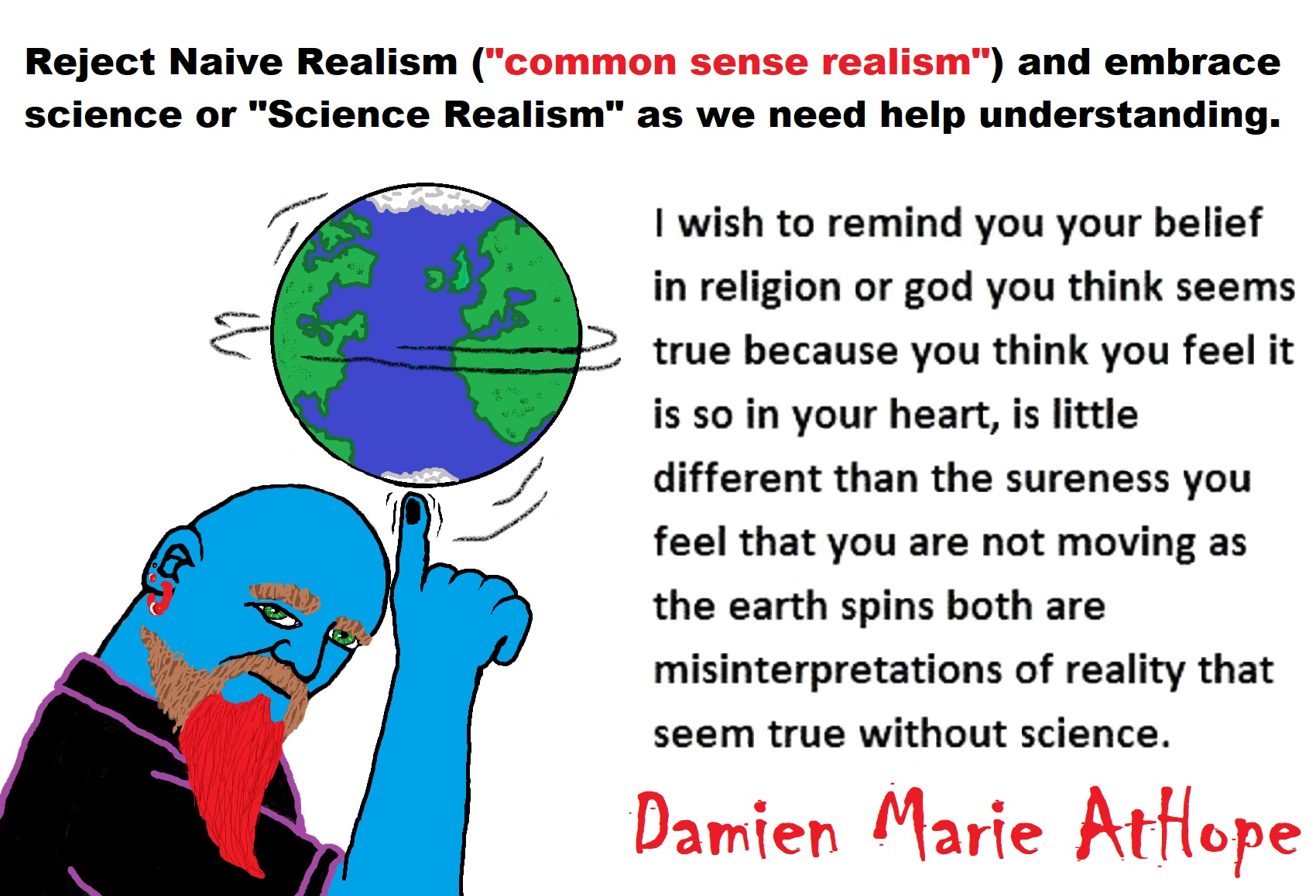
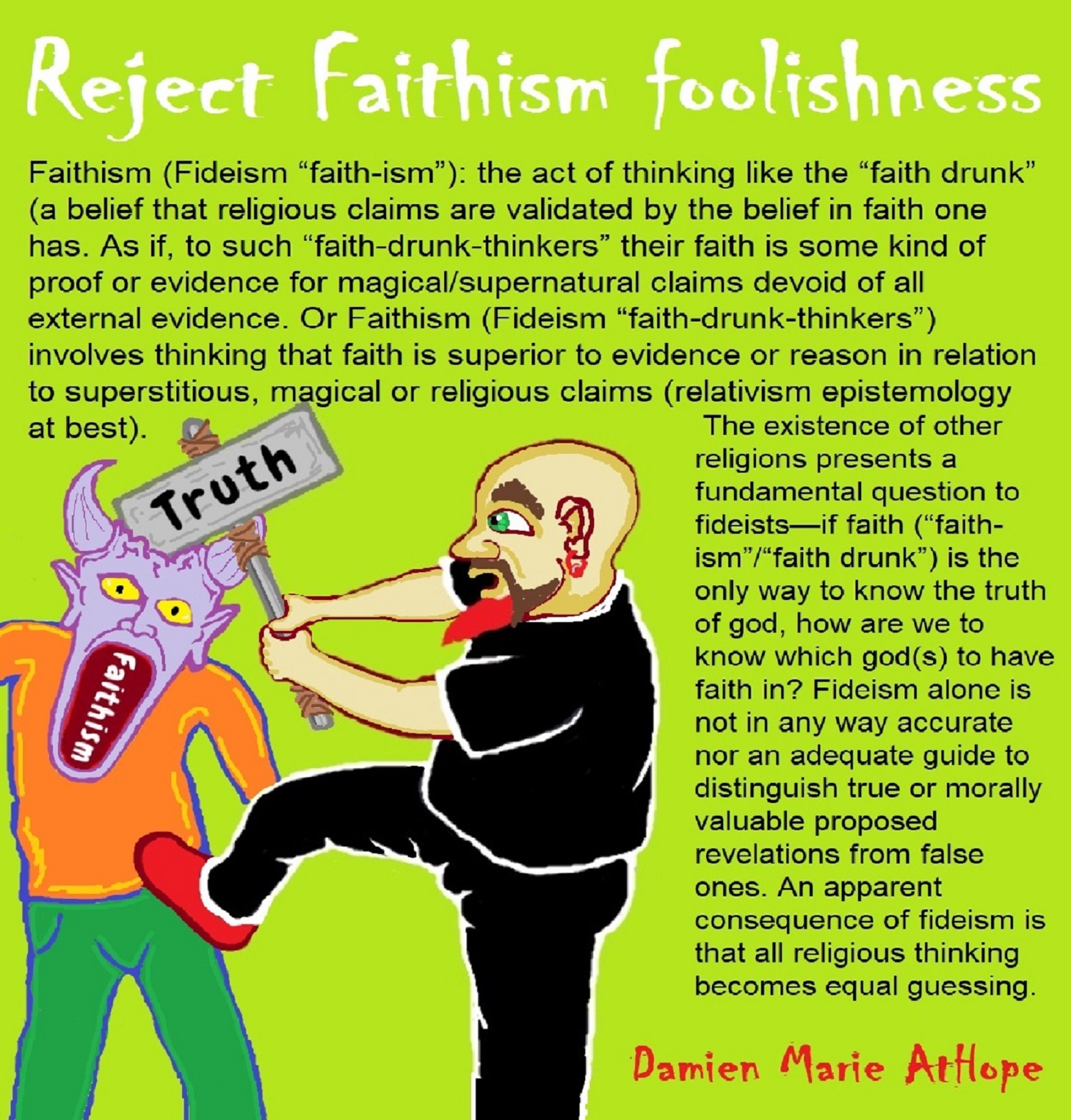
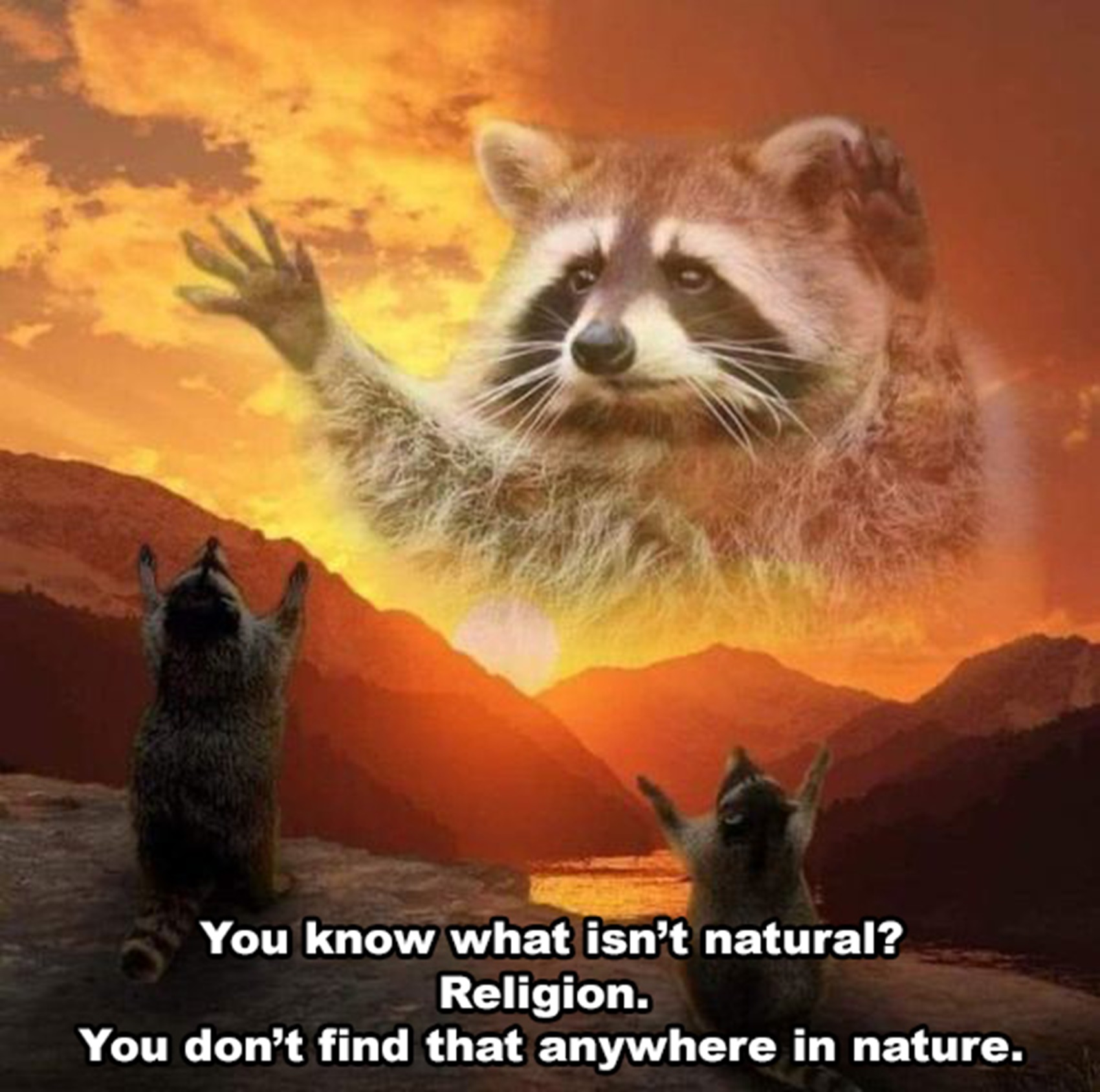


“Theists, there has to be a god, as something can not come from nothing.”
Well, thus something (unknown) happened and then there was something. This does not tell us what the something that may have been involved with something coming from nothing. A supposed first cause, thus something (unknown) happened and then there was something is not an open invitation to claim it as known, neither is it justified to call or label such an unknown as anything, especially an unsubstantiated magical thinking belief born of mythology and religious storytelling.

While hallucinogens are associated with shamanism, it is alcohol that is associated with paganism.
The Atheist-Humanist-Leftist Revolutionaries Shows in the prehistory series:
Show two: Pre-animism 300,000 years old and animism 100,000 years old: related to “Anarchism and Socialism”
Show tree: Totemism 50,000 years old: related to “Anarchism and Socialism”
Show four: Shamanism 30,000 years old: related to “Anarchism and Socialism”
Show five: Paganism 12,000 years old: related to “Anarchism and Socialism”
Show six: Emergence of hierarchy, sexism, slavery, and the new male god dominance: Paganism 7,000-5,000 years old: related to “Anarchism and Socialism” (Capitalism) (World War 0) Elite and their slaves!
Prehistory: related to “Anarchism and Socialism” the division of labor, power, rights, and recourses: VIDEO
Pre-animism 300,000 years old and animism 100,000 years old: related to “Anarchism and Socialism”: VIDEO
Totemism 50,000 years old: related to “Anarchism and Socialism”: VIDEO
Shamanism 30,000 years old: related to “Anarchism and Socialism”: VIDEO
Paganism 12,000 years old: related to “Anarchism and Socialism” (Pre-Capitalism): VIDEO
Paganism 7,000-5,000 years old: related to “Anarchism and Socialism” (Capitalism) (World War 0) Elite and their slaves: VIEDO
Paganism 5,000 years old: progressed organized religion and the state: related to “Anarchism and Socialism” (Kings and the Rise of the State): VIEDO
Paganism 4,000 years old: related to “Anarchism and Socialism” (First Moralistic gods, then the Origin time of Monotheism): VIEDO
I do not hate simply because I challenge and expose myths or lies any more than others being thought of as loving simply because of the protection and hiding from challenge their favored myths or lies.
The truth is best championed in the sunlight of challenge.
An archaeologist once said to me “Damien religion and culture are very different”
My response, So are you saying that was always that way, such as would you say Native Americans’ cultures are separate from their religions? And do you think it always was the way you believe?
I had said that religion was a cultural product. That is still how I see it and there are other archaeologists that think close to me as well. Gods too are the myths of cultures that did not understand science or the world around them, seeing magic/supernatural everywhere.
I personally think there is a goddess and not enough evidence to support a male god at Çatalhöyük but if there was both a male and female god and goddess then I know the kind of gods they were like Proto-Indo-European mythology.
This series idea was addressed in, Anarchist Teaching as Free Public Education or Free Education in the Public: VIDEO
Our 12 video series: Organized Oppression: Mesopotamian State Force and the Politics of power (9,000-4,000 years ago), is adapted from: The Complete and Concise History of the Sumerians and Early Bronze Age Mesopotamia (7000-2000 BC): https://www.youtube.com/watch?v=szFjxmY7jQA by “History with Cy“
Show #1: Mesopotamian State Force and the Politics of Power (Samarra, Halaf, Ubaid)
Show #2: Mesopotamian State Force and the Politics of Power
Show #3: Mesopotamian State Force and the Politics of Power (Uruk and the First Cities)
Show #4: Mesopotamian State Force and the Politics of Power (First Kings)
Show #5: Mesopotamian State Force and the Politics of Power (Early Dynastic Period)
Show #6: Mesopotamian State Force and the Politics of Power
Show #7: Mesopotamian State Force and the Politics of Power (Sargon and Akkadian Rule)
Show #9: Mesopotamian State Force and the Politics of Power (Gudea of Lagash and Utu-hegal)
Show #12: Mesopotamian State Force and the Politics of Power (Aftermath and Legacy of Sumer)

The “Atheist-Humanist-Leftist Revolutionaries”
Cory Johnston ☭ Ⓐ Atheist Leftist @Skepticallefty & I (Damien Marie AtHope) @AthopeMarie (my YouTube & related blog) are working jointly in atheist, antitheist, antireligionist, antifascist, anarchist, socialist, and humanist endeavors in our videos together, generally, every other Saturday.
Why Does Power Bring Responsibility?
Think, how often is it the powerless that start wars, oppress others, or commit genocide? So, I guess the question is to us all, to ask, how can power not carry responsibility in a humanity concept? I know I see the deep ethical responsibility that if there is power their must be a humanistic responsibility of ethical and empathic stewardship of that power. Will I be brave enough to be kind? Will I possess enough courage to be compassionate? Will my valor reach its height of empathy? I as everyone, earns our justified respect by our actions, that are good, ethical, just, protecting, and kind. Do I have enough self-respect to put my love for humanity’s flushing, over being brought down by some of its bad actors? May we all be the ones doing good actions in the world, to help human flourishing.
I create the world I want to live in, striving for flourishing. Which is not a place but a positive potential involvement and promotion; a life of humanist goal precision. To master oneself, also means mastering positive prosocial behaviors needed for human flourishing. I may have lost a god myth as an atheist, but I am happy to tell you, my friend, it is exactly because of that, leaving the mental terrorizer, god belief, that I truly regained my connected ethical as well as kind humanity.
Cory and I will talk about prehistory and theism, addressing the relevance to atheism, anarchism, and socialism.
At the same time as the rise of the male god, 7,000 years ago, there was also the very time there was the rise of violence, war, and clans to kingdoms, then empires, then states. It is all connected back to 7,000 years ago, and it moved across the world.
Cory Johnston: https://damienmarieathope.com/2021/04/cory-johnston-mind-of-a-skeptical-leftist/?v=32aec8db952d
The Mind of a Skeptical Leftist (YouTube)
Cory Johnston: Mind of a Skeptical Leftist @Skepticallefty
The Mind of a Skeptical Leftist By Cory Johnston: “Promoting critical thinking, social justice, and left-wing politics by covering current events and talking to a variety of people. Cory Johnston has been thoughtfully talking to people and attempting to promote critical thinking, social justice, and left-wing politics.” http://anchor.fm/skepticalleft
Cory needs our support. We rise by helping each other.
Cory Johnston ☭ Ⓐ @Skepticallefty Evidence-based atheist leftist (he/him) Producer, host, and co-host of 4 podcasts @skeptarchy @skpoliticspod and @AthopeMarie
Damien Marie AtHope (“At Hope”) Axiological Atheist, Anti-theist, Anti-religionist, Secular Humanist. Rationalist, Writer, Artist, Poet, Philosopher, Advocate, Activist, Psychology, and Armchair Archaeology/Anthropology/Historian.
Damien is interested in: Freedom, Liberty, Justice, Equality, Ethics, Humanism, Science, Atheism, Antiteism, Antireligionism, Ignosticism, Left-Libertarianism, Anarchism, Socialism, Mutualism, Axiology, Metaphysics, LGBTQI, Philosophy, Advocacy, Activism, Mental Health, Psychology, Archaeology, Social Work, Sexual Rights, Marriage Rights, Woman’s Rights, Gender Rights, Child Rights, Secular Rights, Race Equality, Ageism/Disability Equality, Etc. And a far-leftist, “Anarcho-Humanist.”
I am not a good fit in the atheist movement that is mostly pro-capitalist, I am anti-capitalist. Mostly pro-skeptic, I am a rationalist not valuing skepticism. Mostly pro-agnostic, I am anti-agnostic. Mostly limited to anti-Abrahamic religions, I am an anti-religionist.
To me, the “male god” seems to have either emerged or become prominent around 7,000 years ago, whereas the now favored monotheism “male god” is more like 4,000 years ago or so. To me, the “female goddess” seems to have either emerged or become prominent around 11,000-10,000 years ago or so, losing the majority of its once prominence around 2,000 years ago due largely to the now favored monotheism “male god” that grow in prominence after 4,000 years ago or so.
My Thought on the Evolution of Gods?
Animal protector deities from old totems/spirit animal beliefs come first to me, 13,000/12,000 years ago, then women as deities 11,000/10,000 years ago, then male gods around 7,000/8,000 years ago. Moralistic gods around 5,000/4,000 years ago, and monotheistic gods around 4,000/3,000 years ago.
To me, animal gods were likely first related to totemism animals around 13,000 to 12,000 years ago or older. Female as goddesses was next to me, 11,000 to 10,000 years ago or so with the emergence of agriculture. Then male gods come about 8,000 to 7,000 years ago with clan wars. Many monotheism-themed religions started in henotheism, emerging out of polytheism/paganism.

Damien Marie AtHope (Said as “At” “Hope”)/(Autodidact Polymath but not good at math):
Axiological Atheist, Anti-theist, Anti-religionist, Secular Humanist, Rationalist, Writer, Artist, Jeweler, Poet, “autodidact” Philosopher, schooled in Psychology, and “autodidact” Armchair Archaeology/Anthropology/Pre-Historian (Knowledgeable in the range of: 1 million to 5,000/4,000 years ago). I am an anarchist socialist politically. Reasons for or Types of Atheism
My Website, My Blog, & Short-writing or Quotes, My YouTube, Twitter: @AthopeMarie, and My Email: damien.marie.athope@gmail.com

